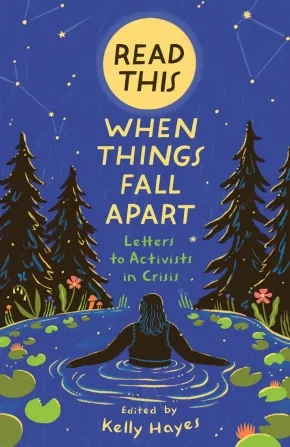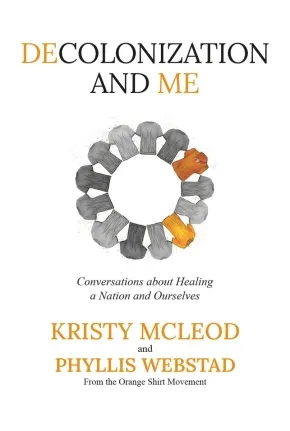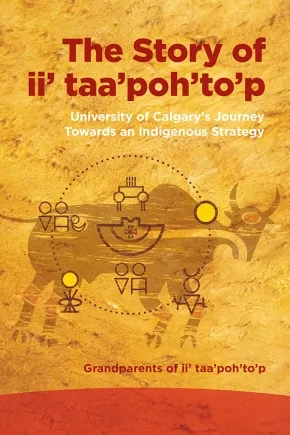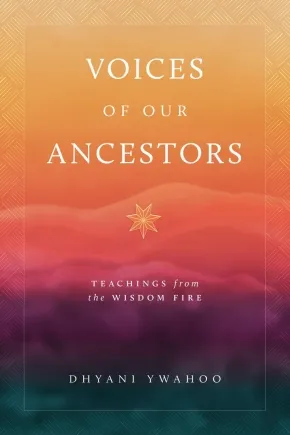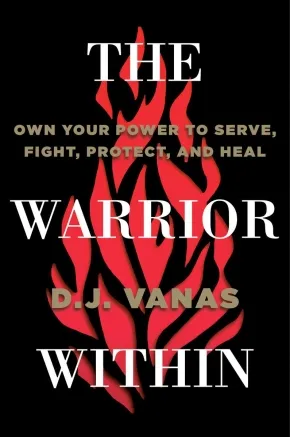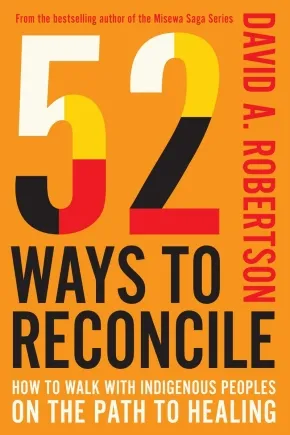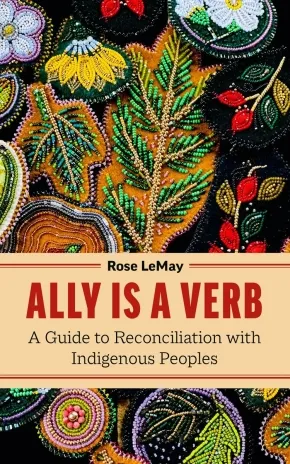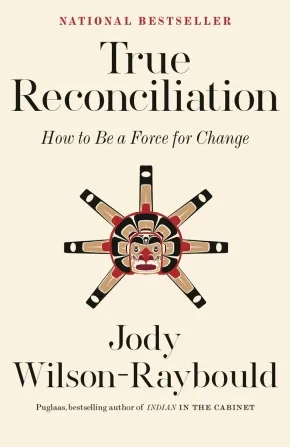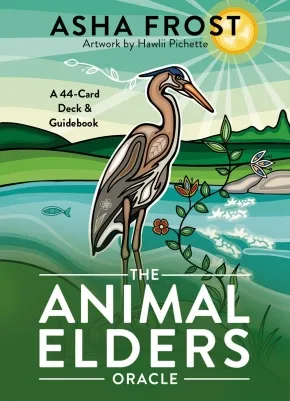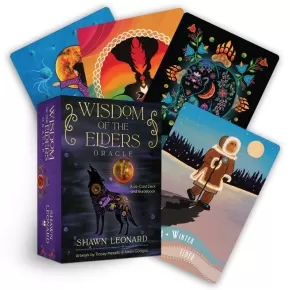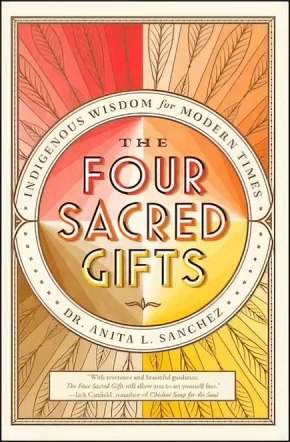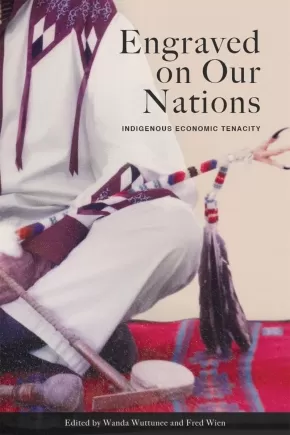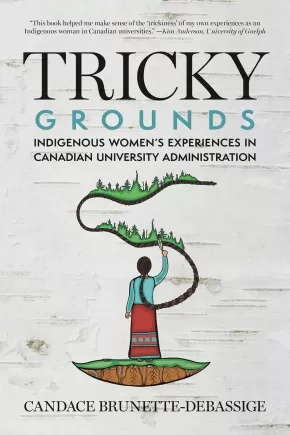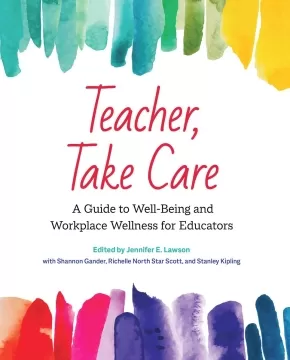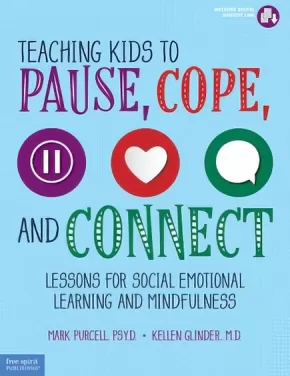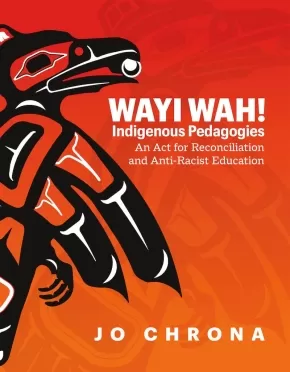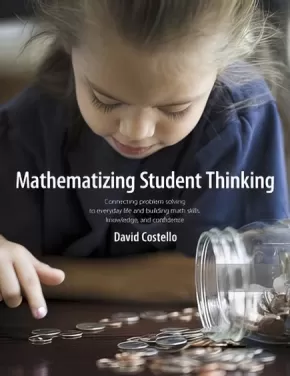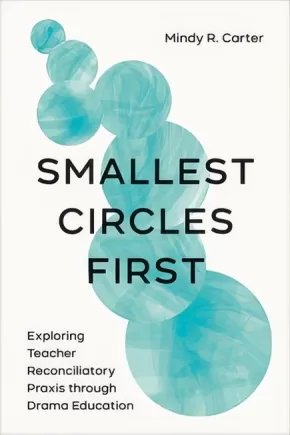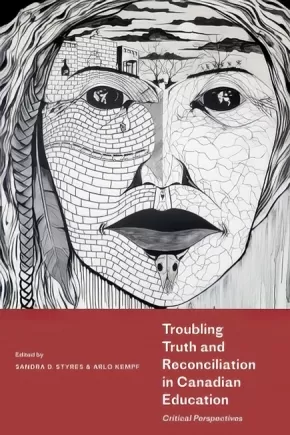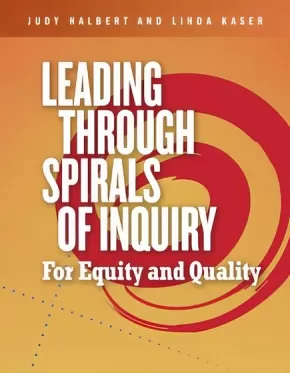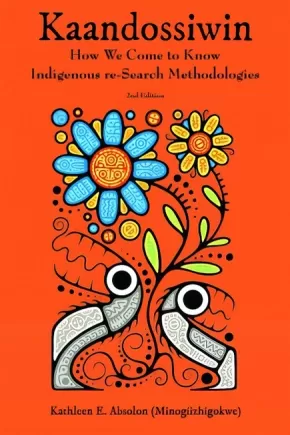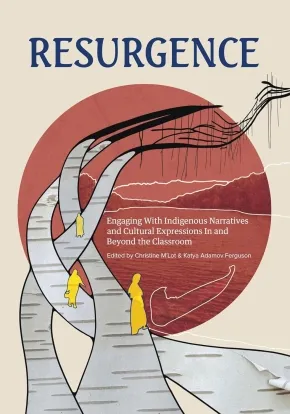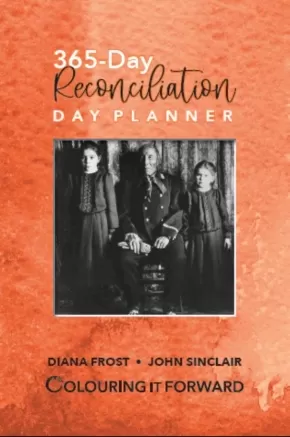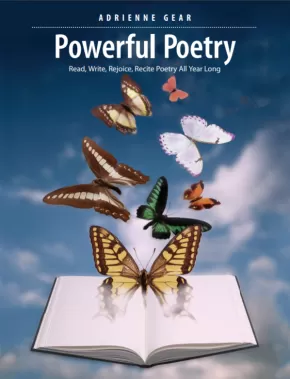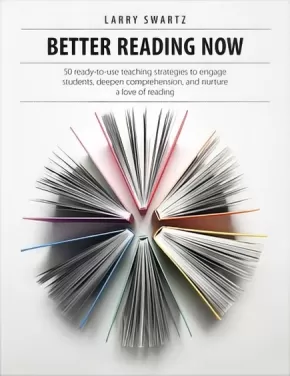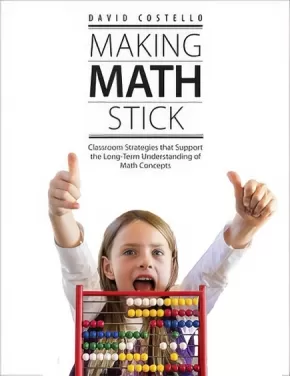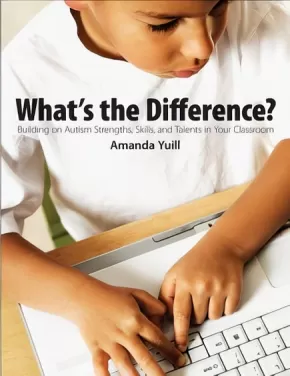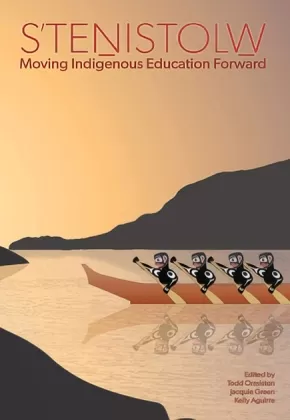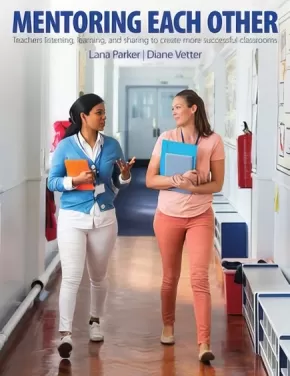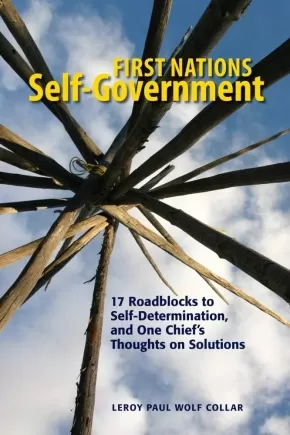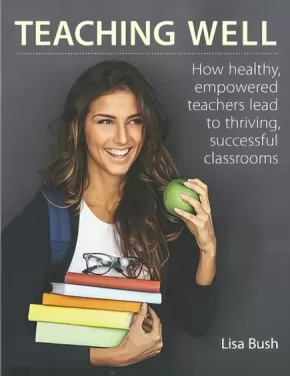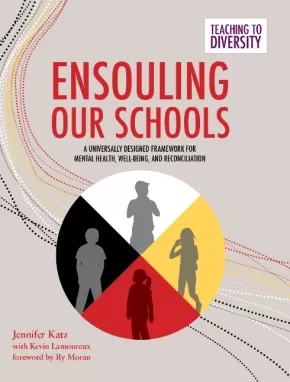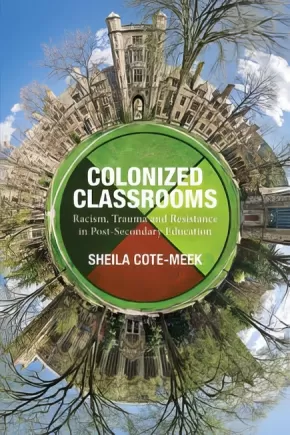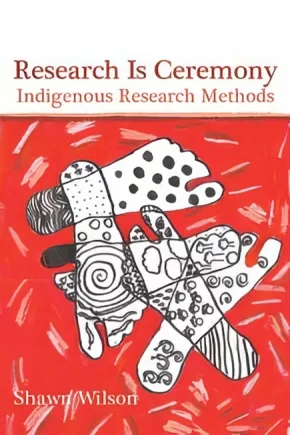
Professional Development
1
-
15
of
50 Results;
Sort By
Go To
of 4
Read This When Things Fall Apart: Letters to Activists in Crisis
$27.95
Editors:
Format:
Paperback
Text Content Territories:
Indigenous Canadian; Indigenous American;
Reading Level: N/A
ISBN / Barcode: 9781849355841
Synopsis:
Synopsis:
A bundle of letters to activists and organizers on the frontlines in catastrophic times from Let This Radicalize You co-author Kelly Hayes.
In social movements, some heartbreaks are all but inevitable. Campaigns will be lost. Mental health crises will occur. Social ills, like gender-based violence, will manifest themselves in movement spaces. People will experience profound personal losses. Grief, alienation, and despair can grind us under. Sometimes, we need accompaniment. Sometimes, we need to be met where we’re at by a caring voice of experience. Read This When Things Fall Apart is a care package for activists and organizers building power under fascistic, demoralizing conditions. It’s an outstretched hand, offering history lessons, personal anecdotes, and practical advice about how to navigate the woes of justice work. A survival guide for the heart, this is a book for activists to keep close, and to share with co-strugglers in need.
Personal, reflective, and hopeful, Read This When Things Fall Apart harnesses the writers' individual moments of despair into living, breathing wisdom that chips away at the supposed inevitability of fascist life. Restorative like a letter from a trusted friend and invigorating like a story from a mentor, the book is an indispensable companion for all of us navigating challenging times. Featuring letters from Mariame Kaba, Ashon Crawley, Leanne Betasamosake Simpson, Leah Lakshmi Piepzna-Samarasinha, Eman Abdelhadi, Brian Merchant, and more.
Reviews
"This marvelous book is essential reading for the times we find ourselves in."—Chanda Prescod-Weinstein, author of The Disordered Cosmos: A Journey into Dark Matter, Spacetime, and Dreams Deferred
"What a gift! We all need these letters, not just in times of crisis or defeat. It is the only book you’ll hold that will hold you, free you, permit you to fail, rest, retreat, grieve, live, laugh, fight, and heal—to be human. This book must never go out of print." —Robin D. G. Kelley, author of Freedom Dreams: The Black Radical Imagination
"Read this When Things Fall Apart is a balm of these dark times. This is the book I wish I'd had as a young organizer. It is a necessary text that sent me through the full kaleidoscope of emotions—spanning rage, laughter, and sadness—but more importantly, helped ground me in times of crisis and unrelenting brutality." —Robyn Maynard, co-author of Rehearsals for Living
“If you need an antidote to despair, this book is for you. It’s a repository of fortifying collective wisdom, a tonic for our troubled times. The letters Kelly Hayes has collected offer vital insights amid the darkness, shrewd strategic advice for aspiring change-makers, and a reminder none of us are in the fight alone.” —Astra Taylor, co-author of Solidarity: The Past, Present, and Future of a World-Changing Idea
“For years I've had a saying: resist the pleasures of doom. It can feel perversely good to tell ourselves that the situation is so bad we simply can't do anything, to throw up our hands and give up. This book is an antidote to the pleasures of doom—it offers the deeper, more sustaining pleasure of solidarity, in beautiful specificity, from committed organizers in a variety of movements. They have felt despair, stared into the void of defeat, and they share concrete advice about the ways we can keep going when all feels hopeless. This book is a profound act of care.” —Sarah Jaffe, author of From the Ashes: Grief and Revolution in a World on Fire
“Read this When Things Fall Apart: Letters to Activists in Crisis is a signpost for activists who feel unsettled about themselves and the future. The contributors offer their truths and wisdom with raw vulnerability. Read this When Things Fall Apart is a resource for anyone who believes hope will guide us through the darkest of times.” —Alice Wong, editor of Disability Intimacy: Essays on Love, Care, and Desire
"These letters are like seeds in a pomegranate—gorgeous gems full of nourishment, nestled together, shaped by one another, juicy, sweet and alive. The intimacy and urgency of these wise messages, written by people who have given so much to our movements and seen so much, is just what we need right now, in harrowing times, to help new people cross the threshold to collective action and to bolster the spirits of all who continue to press on, against difficult odds. I cannot wait to give this book to my students and the people I've been working with for decades. We all need what is in here." —Dean Spade, author of Mutual Aid: Building Solidarity During This Crisis (and the Next)
“In this time of monsters burying us in grief and despair, this extraordinary collection is a steady hand with advice, analysis and affirmation. Each generous and generative letter centers our love for ourselves and our people as methodology. This book is a compelling reminder that we need each other as comrades and community, that we all have gifts to contribute to movements, and that—through uncertainty and one million experiments—we will win.” —Harsha Walia, author of Border and Rule: Global Migration, Capitalism, and the Rise of Racist Nationalism
Additional Information
172 pages | 5.50" x 8.50" | Paperback
Decolonization and Me: Conversations about Healing a Nation and Ourselves
$30.99
Text Content Territories:
Indigenous Canadian; First Nations; Salish; Interior Salish; Secwepemc (Shuswap); Stswecem'c Xgat'tem; Métis;
Reading Level: N/A
ISBN / Barcode: 9781778540684
Synopsis:
Synopsis:
This book invites readers to step into a space of reflection on your personal relationship with truth, reconciliation, and Orange Shirt Day.
Written in response to the increase of residential school denialism, Phyllis Webstad and Kristy McLeod have collaborated to create a book that encourages readers to face their own biases. This book challenges readers through a series of sensitive conversations that explore decolonization, Indigenization, healing, and every person’s individual responsibility to truth and reconciliation. Centered around the Orange Shirt Day movement, and a National Day for Truth and Reconciliation, these conversations encourage readers to unpack and reckon with denialism, biases, privilege, and the journey forward, on both a personal and national level.
Within each chapter, Phyllis Webstad draws on her decade of experience (sharing her Orange Shirt Story on a global level and advocating for the rights of Indigenous Peoples) to offer insights on these topics and stories from her personal journey, which co-author and Métis scholar, Kristy McLeod, helps readers to further navigate. Each section includes real denialist comments taken from social media and Kristy's analysis and response to them. Through empathy-driven truth-telling, this book offers an opportunity to witness, reflect, heal, and be intentional about the seeds we hope to plant for the future, together.
Additional Information
350 pages | 5.70" x 8.25" | Hardcover
Renewal: Indigenous Perspectives on Land-Based Education In and Beyond the Classroom
$37.00
Artists:
Format:
Paperback
Text Content Territories:
Indigenous Canadian;
ISBN / Barcode: 9781774921678
Synopsis:
Synopsis:
A guide that provides ideas and action steps for bringing Indigenous perspectives and philosophies of land-based learning into professional practice, in the classroom and beyond.
Renewal, the second book in the Footbridge series, guides K–12 educators in bringing Indigenous voices and the philosophy, principles, and practices of Indigenous land-based education into their teaching. This text encourages educators to:
- respectfully renew their own relationships with land directly engage students with the land, no matter where they are located
- guide students in learning through observation, listening, and discussion and to take action in response
- honour diverse ways of knowing and being
- understand historic injustices and engage with the contemporary Land Back movement
Through critical engagement with diverse written and visual works created by Indigenous leaders, land defenders, scholars, and Knowledge Keepers, experienced educators Christine M'Lot and Katya Adamov Ferguson support readers in connecting with Indigenous perspectives on land and water. They offer guidance on bringing Indigenous works into the classroom, including concrete ways to facilitate discussions around land-based topics, advice for land-based activities, and suggestions for how students can engage with these topics through inquiry learning.
In this resource, you will find:
- prompts for individual reflection and group discussion
- valuable concepts and methods that can be applied in the classroom and beyond
- practical action steps and resources for educators, parents, librarians, and administrators
Use this book as a springboard for your own learning journey or as a lively prompt for dialogue within your professional learning community.
Reviews
"Renewal lays out a simple and practical approach to land-based education. It works from the premise that land-based education is not simply “taking the classroom outside,” but is about "education on the land, about the land, and from the land.” The spiritual foundation of earth-based cultures is about living in your place as one small, equal part of the land (land being the entirety of air, earth, water, living beings, and spirits), a foundation common to most Indigenous cultures on this planet. I hope that others adopt it in their journey to become more holistic educators and maybe even make a positive difference in shaping how we humans interact with the land." — Dr. Garry Merkel, Director, Centre of Indigenous Land Stewardship, The University of British Columbia
Educator & Series Information
For use with grades K to 12.
This book is part of The Footbridge Series. This series aims to bridge curricular outcomes with Indigenous-centered content and perspectives from across Turtle Island. Like a footbridge, this series is intended to provide a path between Indigenous worldviews and the classroom, engaging differences, including tensions, and highlighting the importance of balance, all while helping teachers integrate Indigenous perspectives into multiple disciplines within the K-12 education system.
Contributions by Nicki Ferland, Peatr Thomas, Tyna Legault Taylor, Shannon Webb-Campbell, Tasha Beeds, Sonny Assu, Shalan Joudry, Tricia Logan, Dakota Bear, Shirli Ewanchuk, Dan Henhawk, Réal Carrière, Hetxw'ms Gyetxw Brett D. Huson, Reanna McKay (Merasty)
Photographs by Inuksaq Angotingoar, Makayla Aupaluktuq, Brendan Kingilik, Carina Kingilik, Kyle Lareau, Quin Mikkungwak, Narkyagik, Kaylee Rumbolt, Marissa Scottie, Nathan Snow, Connor Tagoona-Niego, Koen Tapatai, and Shelly Tunguaq
Additional Information
224 pages | 7.00" x 10.00" | Paperback
The Story of ii' taa'poh'to'p: University of Calgary's Journey Towards an Indigenous Strategy
$34.99
Format:
Paperback
Text Content Territories:
Indigenous Canadian;
Reading Level: N/A
ISBN / Barcode: 9781773856285
Synopsis:
Synopsis:
A dynamic framework for the development of an Indigenous strategy that shares the engaging story of ii’taa’poh’to’p at the University of Calgary.
The University of Calgary’s Indigenous strategy, ii’taa’poh’to’p, lays the path for a journey of transformation and renewal for truth and reconciliation through ways of knowing, doing, connecting, and being.
The Story of ii’ taa’poh’to’p is the story of the creation of the University of Calgary’s Indigenous Strategy. The result of an enlightening process of relationship building and deep learning and listening, it required the intentional and careful creation of parallel paths for institutional and Indigenous frameworks to create the strategy. Authentic conversations occurred in the ethical space between the parallel paths, allowing for increased understanding of differences and similarities between cultures.
This book captures powerful and emotional stories that emphasize the importance of reconciliation and decolonizing organizations. It demonstrates that trusting relationships can be developed between Indigenous and non-Indigenous relatives and lays out a dynamic framework and approach for the development of an Indigenous strategy.
The Grandparents of ii’ taa’poh’to’p welcome readers to learn from their experience. They share insightful lessons about the importance of being relational; honouring ways of knowing and doing from other cultures; developing generational strategies that persist over time; understanding the impacts of fear; and making assumptions about people’s prior knowledge. They discuss how relationship building through deep listening across cultures is essential to the development of an Indigenous strategy. The Story of ii’ taa’poh’to’p is essential reading for all those interested in the development of an Indigenous strategy in the pursuit of truth and reconciliation.
Educator Information
About the Authors: The Grandparents of ii ’taa’poh’to’p are a collective of leaders from diverse cultural backgrounds and experiences who guided the development of the Indigenous strategy at the University of Calgary.
Additional Information
176 pages | 6.00" x 9.00" | Paperback
Voices of Our Ancestors: Teachings from the Wisdom Fire
$33.95
Format:
Paperback
Text Content Territories:
Indigenous American; Native American; Cherokee; Eastern Band of Cherokee;
Reading Level: N/A
ISBN / Barcode: 9781645473046
Synopsis:
Synopsis:
Follow the beauty way to generate happiness and good relationships, fulfill your life purpose, manifest peace and abundance, and renew the planet.
Dhyani Ywahoo’s powerful, prophetic, and compassionate voice returns in this new expanded edition of the book that’s sold over 90K copies.
This beloved book has resonated with thousands of spiritual explorers and other readers wishing to ground their activities in harmony and well-being. In this expanded edition, Dhyani Ywahoo continues to be a guiding source of wisdom for all who walk the Beauty Way. As the twenty-seventh generation to carry the Ywahoo lineage of the Eastern Tsalagi/Cherokee Nation, she shares the precious oral teachings of her people that remain timely, powerful, and accessible.
Weaving together Buddhist and Native American traditions, Voices of Our Ancestors offers practical ways of transforming obstacles into happiness and good relationships, fulfilling our life purpose, manifesting peace and abundance, and renewing the planet. The Tsalagi worldview teaches us to infuse each moment with the three fundamental principles of intention, compassion, and doing good. We have the opportunity to let go of fear and aggression and begin to live a life of enlightened consciousness, with tools like:
- Meditations;
- Healing rituals;
- Instructions for working with crystals; and
- Teachings on how to practice generosity and harmony.
Our journey is enriched by Dhyani Ywahoo’s new reflections on the expansion of Native American communities in the United States and how they have cooperated to bring Indigenous voices into larger conversations about conflict resolution, the climate crisis, and the need for inclusion of underrepresented groups and individuals. With a voice that is powerful, prophetic, and compassionate, Dhyani Ywahoo calls on us to become peacekeepers in our hearts and in the world.
Reviews
“Venerable Dhyani Ywahoo embodies wisdom of the Native and Tibetan traditions. Hers is a lifetime spent generously sharing these sacred teachings with students all over the world. I celebrate this new edition of her book, which will hold these precious methods to walk in this world with wisdom and compassion now and for future generations.”—Lama Konchok Sonam, spiritual director of Drikung Meditation Center
“These wisdom teachings are profoundly life-changing for spiritual growth no matter your tradition. Venerable Dhyani Ywahoo is an exceptional spiritual leader and teacher, having forged her own way through traditional Cherokee and Vajrayana teachings. She compassionately embraces her students with her wisdom, offering unique and significant insights. Voices of Our Ancestors is a timeless work and as such it lends support and inspiration continually.”—Shan Watters, artist and author of Mothering the Divine
Additional Information
352 pages | 6.00" x 8.99" | Paperback
The Warrior Within: Own Your Power to Serve, Fight, Protect, and Heal
$39.00
Format:
Hardcover
Text Content Territories:
Indigenous American; Native American;
Reading Level: N/A
ISBN / Barcode: 9780593423011
Synopsis:
Synopsis:
A transformational guide to getting yourself right in order to accomplish the work you were meant to do, from speaker, former U.S. Air Force officer, and member of the Ottawa tribe D.J. Vanas.
When faced with an important job, and people depending on you to do it, most of us will give and give until there’s nothing left. But running on empty, even for a worthy cause, only sets you up for failure in the long run. To persevere on the path to success requires more than sheer fearlessness and willpower. It requires what D.J. Vanas calls the warrior spirit, the kind of strength that looks outward but comes from deep within.
Drawing inspiration from Native American philosophy and tradition, The Warrior Within outlines a new model for personal power in the face of overwhelming chaos. A true warrior is not the toughest or bravest person in the room. A true warrior is committed to self-mastery, knows how to navigate change and disruption, transforms setbacks into opportunities for achievement, refuses to quit, and most importantly, always fights for something bigger than the self. With a vast array of stories and examples, from vision quests to treacherous hikes to veterans and service providers at the front lines, Vanas shows how to apply these principles to transform how you show up both for yourself and those around you.
More than an empowerment manual, The Warrior Within is a call to accomplish the world-changing work you were meant for by tapping into the power of the warrior spirit.
Reviews
"The powerful lessons imparted in these chapters will inspire strength, confidence and motivation, so that you can deliver your best in the worst of circumstances—while keeping your sanity and health! I encourage every healthcare giver to read The Warrior Within, for they truly serve, fight, protect and heal every day, often at their own expense."--LeAnn Thieman, author of the Chicken Soup for Nurse’s Soul series and founder of SelfCare for HealthCare®
"I highly recommend The Warrior Within! Through great storytelling, D.J. Vanas shares an often overlooked element of leadership ... taking care of yourself. Our beautiful Anishinaabe teachings emphasize balance in all things. Being a warrior means recognizing your needs and honoring your gifts. Way to go, D.J.!"--Angeline Boulley (Sault Ste. Marie Tribe of Chippewa Indians) New York Times bestselling author of Firekeeper's Daughter
"D.J. Vanas inspires us to find our ‘warrior spirit’ of courage, perseverance, resilience, and teamwork in life’s most fearful times. Your heart will soar like an eagle as you read how ordinary heroes use this inner strength to serve others—and how we can learn to do the same.”--Joseph Pfeifer, FDNY Assistant Chief, retired, author of Ordinary Heroes
“This is it: the book I’ve been waiting for! There isn’t another on the market that applies indigenous principles and ideas in order to expose the warrior in you. A comprehensive, compelling, emotional and amazingly insightful book. I couldn’t put it down. I wish I had this book years ago!"--Juanita Mullen (Seneca), AI/AN Veterans Liaison, Department of Veterans Affairs
“DJ Vanas describes a life of leading and doing through Indigenous identity and values. Combining his personal story with advice, The Warrior Within is more than a leadership book. It is a story of living a life of abundance and rich relationships, with DJ as your terrific guide.”-Cheryl Crazy Bull, President & CEO, American Indian College Fund
Additional Information
256 pages | 5.72" x 8.57" | Hardcover
52 Ways to Reconcile: How to Walk with Indigenous Peoples on the Path to Healing
$25.00
Format:
Hardcover
Text Content Territories:
Indigenous Canadian;
Reading Level: N/A
ISBN / Barcode: 9780771019357
Synopsis:
Synopsis:
From bestselling author of the Misewa Saga series David A. Robertson, this is the essential guide for all Canadians to understand how small and attainable acts towards reconciliation can make an enormous difference in our collective efforts to build a reconciled country.
52 Ways to Reconcile is an accessible, friendly guide for non-Indigenous people eager to learn, or Indigenous people eager to do more in our collective effort towards reconciliation, as people, and as a country. As much as non-Indigenous people want to walk the path of reconciliation, they often aren’t quite sure what to do, and they’re afraid of making mistakes. This book is the answer and the long overdue guide.
The idea of this book is simple: 52 small acts of reconciliation to consider, one per week, for an entire year. They’re all doable, and they’re all meaningful. All 52 steps take readers in the right direction, towards a healthier relationship between Indigenous and non-Indigenous people and a time when we are past trauma. By following these steps, we can live in stronger and healthier communities equally, and respectfully, together.
Additional Information
224 pages | 5.00" x 8.00" | Hardcover
Ally Is a Verb: A Guide to Reconciliation with Indigenous Peoples
$24.95
Format:
Paperback
Text Content Territories:
Indigenous Canadian;
Reading Level: N/A
ISBN / Barcode: 9781774585771
Synopsis:
Synopsis:
Your next step on the journey of reconciliation starts here.
What can you do to be a better ally for your Indigenous colleagues, community members, and friends? By actively listening to the history and current lived experiences of Indigenous peoples, you can take steps to address the inequities they continue to face. Author Rose LeMay notes that if you continually educate yourself, you will see many opportunities to be an ally.
This insightful book suggests how to enter the field of reconciliation in a good way, in your community and your workplace. You will learn:
-more about the true history shared by Indigenous peoples and colonial governments
-why reconciliation is mostly the responsibility of non-Indigenous people
-approaches to intervene when you see racism happening
-better ways to respond to emotions that come up when doing the work of an ally
-how to be an active team player for equity and inclusion
LeMay describes key principles to promote reconciliation, deepen your practice of allyship, and contribute to meaningful change.
Additional Information
200 pages | 5.00" x 8.00" | Paperback
True Reconciliation: How to Be a Force for Change (PB)
$23.00
Format:
Paperback
Text Content Territories:
Indigenous Canadian;
Reading Level: N/A
ISBN / Barcode: 9780771004407
Synopsis:
Synopsis:
There is one question Canadians have asked Jody Wilson-Raybould more than any other: What can I do to help advance reconciliation? It is clear that people from all over the country want to take concrete and tangible action that will make real change. We just need to know how to get started. This book provides that next step. For Wilson-Raybould, what individuals and organizations need to do to advance true reconciliation is self-evident, accessible, and achievable. True Reconciliation is broken down into three core practices—Learn, Understand, and Act—that can be applied by individuals, communities, organizations, and governments.
The practices are based not only on the historical and contemporary experience of Indigenous peoples in their relentless efforts to effect transformative change and decolonization, but also on the deep understanding and expertise about what has been effective in the past, what we are doing right, and wrong, today, and what our collective future requires. Fundamental to a shared way of thinking is an understanding of the Indigenous experience throughout the story of Canada. In a manner that reflects how work is done in the Big House, True Reconciliation features an “oral” history of these lands, told through Indigenous and non-Indigenous voices from our past and present.
The ultimate and attainable goal of True Reconciliation is to break down the silos we’ve created that prevent meaningful change, to be empowered to increasingly act as “inbetweeners,” and to take full advantage of this moment in our history to positively transform the country into a place we can all be proud of.
Additional Information
352 pages | 5.17" x 7.99" | Paperback
Indigenous Child and Youth Care: Weaving Two Heart Stories Together (1 in Stock)
$62.95
Format:
Paperback
Grade Levels: University/College;
ISBN / Barcode: 9781773383712
Synopsis:
Synopsis:
At its core, Indigenous Child and Youth Care: Weaving Two Heart Stories Together is about unity. It seeks to create a heart-to-heart practice by bridging Indigenous ways of knowing with Western Child and Youth Care practices, encouraging students to approach their work with a more open understanding of First Nations, Métis, and Inuit worldviews.
Author Cherylanne James guides students through self-location by dismantling their pre-existing biases regarding Indigenous Peoples, understanding personal privilege and power, educating themselves on Canadian and Indigenous history and contexts, and learning about the pervasive impacts of colonialism. Students will cultivate a practice that encourages ethical spaces of engagement while steering away from surface-level or disingenuous interactions.
The text applies concepts and theories such as relational accountability, interconnectivity, resurgence, community-centred approaches, wise practices, relationship-building, anti-oppression, anti-racist, and social justice frameworks to enrich CYC practices and prepare students to engage with Indigenous children, youth, and families in an informed, meaningful way.
Indigenous Child and Youth Care is designed as a journey, wherein the student reflects while they learn and grow as a CYC professional. It includes a variety of pedagogical features that catalyze thoughtful interaction with the material, such as a glossary, discussion questions, reflective practice question boxes, and additional resources for further learning. This is a powerful and vital text for college and university students in Child and Youth Care and Human Services.
Features
- unites Indigenous worldviews, histories and knowledge systems with western Child and Youth Care practices
- exposes students to pre-existing colonial and racist power structures while introducing them to Indigenous concepts and theories for inclusive practice
- contains a broad variety of pedagogical features, including a glossary, reflective practice questions, discussion questions, activities, and additional resources
Educator Information
Table of Contents
Acknowledgements
Introduction
SECTION 1 CONTEXT FOR INDIGENOUS CHILD AND YOUTH PRACTICES
Chapter 1 Self-Location
Chapter 2 Storying Identity
Chapter 3 Living History
Chapter 4 Wise Practice: The Self (Part 1)
Chapter 5 Wise Practice: Working within Spaces and with Others (Part 2)
SECTION 2 CHALLENGES
Chapter 6 Canadian Child Welfare’s Impact on Indigenous Children, Families, and Communities
Chapter 7 MMIWG2S People and Gender-Based Violence
Chapter 8 Trauma
Chapter 9 Legislation, Calls to Action, and Policy
SECTION 3 CHILD, YOUTH, FAMILY, AND COMMUNITY APPROACHES
Chapter 10 Heart-Centred Practice: Fostering Love through Indigenous Approaches to Child and Youth Work
Chapter 11 Supporting Kinship and Family Relations
Chapter 12 Community Wellness: Land, Water, Language, and Community
Chapter 13 Resurgence and Resistance: Re/Centring Indigenous Children and Youth through Strength-Based Approaches
Closing Heart-to-Heart Practice
Child and Youth Care Certification Board
Glossary
Index
Additional Information
308 Pages | 6.75" x 9.75" | Paperback
The Animal Elders Oracle: A 44-Card Deck & Guidebook of Indigenous Wisdom & Healing Medicine
$25.99
Artists:
Text Content Territories:
Indigenous Canadian; First Nations; Anishinaabeg; Ojibway;
Reading Level: N/A
ISBN / Barcode: 9781401978181
Synopsis:
Synopsis:
Tap into guidance from the animal spirit realm and connect to ancestral wisdom with this transformative 44-card deck and guidebook from Indigenous Medicine Woman and author of You Are the Medicine and The Sacred Medicine Oracle, Asha Frost.
Everything is interconnected. All of creation carries a spirit. Indigenous people have always had a sacred relationship with animals and treated them as honored elders. Animal beings in the spirit realm are part of our spiritual support team as allies and medicine keepers, ready to help, waiting to remind you of your humanity and deep connection to the natural world.
With 44 Elder Animals depicted in a richly detailed traditional Ojibway art style, each card carries its own unique medicine. This deck offers meaningful insights and messages to guide you on your path both from the universe and in the voice of an animal spirit guide from the lands of the Ojibway people—from Elder Artic Hare to Elder Wolf. Whether you're seeking clarity, healing, or a deeper connection to your ancestral lineage, these cards provide a bridge to the spirit world.
Use this deck your rituals and ceremonies, do readings with it for your clients and friends, and share it with your communities. As the medicine ripples out, hold Indigenous people in your heart and honor how their history continues to impact your current reality.
Additional Information
128 pages | 3.50" x 5.00" | Card Deck & Guidebook
Wisdom of the Elders Oracle: A 44-Card Deck and Guidebook
$28.99
Artists:
Text Content Territories:
Indigenous American; Native American; Mi'kmaq;
Reading Level: N/A
ISBN / Barcode: 9781401971755
Synopsis:
Synopsis:
A 44-card oracle deck focusing on the teachings, traditions, and wisdom of the Mi’kmaq people, meant to help the reader create a deeper connection with the spirit world and Mother Earth.
Indigenous wisdom is sacred and has been shared for many generations by the Elders of the spirit world, and it is through their wisdom that we bridge the physical world to the spirit world. When you use these oracle cards you are walking in the world with the wisdom of the Elders. These teachings were meant to be shared with you, and to help you through your daily and spiritual life.
This deck is a tool meant to support you on your journey through life; the purpose of sharing these teachings is to help you grow and develop spiritually, within your own personal connection to Spirit, and to your loved ones on the other side.
The cards include—but are not limited to—teachings and concepts like:
Indigenous wisdom is sacred and has been shared for many generations by the Elders of the spirit world, and it is through their wisdom that we bridge the physical world to the spirit world. When you use these oracle cards you are walking in the world with the wisdom of the Elders. These teachings were meant to be shared with you, and to help you through your daily and spiritual life.
This deck is a tool meant to support you on your journey through life; the purpose of sharing these teachings is to help you grow and develop spiritually, within your own personal connection to Spirit, and to your loved ones on the other side.
The cards include—but are not limited to—teachings and concepts like:
- the Seven Grandfather Teachings
- the Four Sacred Fire Teachings
- the Four Sacred Medicines
- the Milky Way
- Talking Circle
- Two-Spirit
- Spirit Totem Animal
- Power Totem Animal
- Wigwam.
Additional Information
120 pages | 3.94" x 5.44" | 44-Card Deck and Guidebook
The Four Sacred Gifts: Indigenous Wisdom for Modern Times
$24.99
Format:
Paperback
Text Content Territories:
Indigenous Central American; Indigenous Peoples in Mexico; Nahuas;
Reading Level: N/A
ISBN / Barcode: 9781501150869
Synopsis:
Synopsis:
In The Four Sacred Gifts, visionary international business consultant Anita Sanchez, PhD, reveals the timely prophecy entrusted to her by a global collective of indigenous elders—four guiding gifts that “will allow you to set yourself free to live your most successful life…learn how to forgive, to heal, to unite with all life, and to revitalize hope” (Jack Canfield, co-author of Chicken Soup for the Soul).
As we ride the powerful waves of change occurring in our economic, social, political, and physical environment, indigenous wisdom is needed—now more than ever—to guide us to inhabit the fullest and healthiest lives possible.
The Four Sacred Gifts opens your mind and heart to an indigenous worldview that will ultimately free you from fear and empower you to find peace even in the conflicts of our tumultuous world. Based on a prophecy that is now coming true, this book reveals how our world depends on each of us discovering a interconnectedness to people, earth, and animals, in the awareness that we are “all one relation.”
Within these pages, you will find deep wisdom of elders from all continents as they come together to give you four sacred gifts: the power to forgive the unforgivable, the power of unity, the power of healing, and the power of hope. These gifts will guide you to transformation, and support your journey to wholeness.
By following the powerful principles, lessons, and tools found in this book, you will experience personal breakthroughs, become a force for conscious, societal evolution, and learn to live in deeper harmony with all of humanity.
Reviews
"No remedy is more needed in today’s confusing and seemingly chaotic times than the power of simple wisdom. In this beautifully written book, Anita Sanchez draws on her own moving and revealing life experiences to present four gifts of indigenous wisdom that can help us heal ourselves, our communities and our broken world.” — William Ury, co-author of Getting to Yes and author of Getting to Yes with Yourself
"The Four Sacred Gifts is a beautiful answer to why so many people feel separate, alone, and afraid, and how to get back naturally and easily into harmony, connection and love with ourselves, nature and each other. I highly recommend reading and processing all the wisdom of The Four Sacred Gifts." — Christy Whitman, New York Times bestselling author
"In her exquisite book, Anita Sanchez makes an offering to us of the Four Sacred gifts that were given to her by her Elders. Though her own insights and personal stories, she brings to life the power and critical relevance of indigenous wisdom to our times. If you care about the state of the planet, if you are moved by injustice and the all the ways we humans cause suffering to ourselves and others,The Four Sacred Gifts offers the message and good medicine we need to lead a life in balance and help leave a better world for the coming generations." — Robert Gass, co-founder the Rockwood Leadership Institute
Additional Information
224 pages | 5.50" x 8.37" | Paperback
Engraved on Our Nations: Indigenous Economic Tenacity
$29.95
Format:
Paperback
Text Content Territories:
Indigenous Canadian; First Nations; Métis;
Reading Level: N/A
ISBN / Barcode: 9781772840643
Synopsis:
Synopsis:
A testimony to Indigenous resilience in business.
Despite investments in nation building, self-autonomy, and cultural resurgence, Indigenous economic development has remained an underexplored and underestimated area of research. Engraved on Our Nations overturns the discouraging deficit perspective too common in policy and academia and amplifies the largely undocumented history of successful Indigenous economic activity in Canada.
Following David Newhouse’s overview of Indigenous economic history, the authors of this collection illustrate how First Nation and Métis individuals and communities have met and overcome an array of challenges. Case studies focus on First Nations from Membertou (Nova Scotia) to Tahltan (British Columbia) and Indigenous-led enterprises like McDonald Brothers Electric (Northwest Territories) and Neechi Commons (Manitoba). Simultaneously celebrating Indigenous entrepreneurs and exploring concerns around sustainable development, the book also asks: can capitalism be Indigenized?
This first-of-its-kind collection shares stories not only of entrepreneurial excellence and persistence but savvy leadership, innovation, and reciprocity. In doing so, Engraved on Our Nations provides hope to Indigenous business leaders, youth, and elected officials working on the front lines to improve economic conditions and achieve "a good life" for their communities.
Reviews
“There are few books that can compare to this. The strengths-based approach used by each author is refreshing and will be of service to First Nations communities and to Indigenous and non-Indigenous scholars in community economic development.” — Shelley T. Price
“Engraved on Our Nations clearly articulates the strength, courage, and foresight of Indigenous people. The uplifting stories within this volume will open the eyes of readers and elicit hope, inspiration, and pride.” — Bob Kayseas
Educator Information
Table of Contents
Preface: Exploring Indigenous Economic Tenacity in Canada – Wanda Wuttunee and Fred Wien
Introduction: Indigenous Economic History as the History of Tenacity – David Newhouse
Part One: Strategic Leadership
1. How Does First Nation Social and Economic Development Contribute to the Surrounding Region? A Case Study of Membertou – Mary Beth Doucette and Fred Wien
2. Incremental Planning: The Tsawwassen First Nation Experience – Daniel M. Millette
3. Fulfilling Treaty Promises: Treaty Land Entitlement and Urban Reserves in Saskatchewan – Charlotte Bezamat-Mantes
Part Two: Culturally on Point
4. Trading on Tradition: Innovative Indigenous Enterprise – Isobel M. Findlay
5. Capitalism: Can It Be Indigenized? – Clifford Gordon Atleo
6. Challenges and Opportunities for BC First Nations’ Economic Self-Determination – J. Sayers
Part Three: Family Connections
7. Honouring Entrepreneurial Resilience: Atlantic Region Lifetime Achievers – Chris Googoo, Catherine Martin, and Fred Wien
8. A Métis Light in the Northern Darkness—Case Study – Wanda Wuttunee
9. Neechi Commons Case Study: A Lost Love Letter to Winnipeg – Wanda Wuttunee
Part Four: Partnering for Success
10. Tahltan Economic Tenacity—From Affluence to Poverty to Affluence – Jerry Asp
11. Stronger Together: First Nation Community/Municipality Collaborations – Wanda Wuttunee
Conclusion: What Did We Learn About Indigenous Tenacity? Fred Wien and Wanda Wuttunee
Acknowledgements
Contributors
Index
Additional Information
304 pages | 6.00" x 9.00" | Index, Bibliography | Paperback
Tricky Grounds: Indigenous Women's Experiences in Canadian University Administration
$34.95
Format:
Paperback
Text Content Territories:
Indigenous Canadian; First Nations; Cree (Nehiyawak); Swampy Cree ; Mushkegowuk;
Reading Level: N/A
ISBN / Barcode: 9780889779778
Synopsis:
Synopsis:
Breaks the deafening silence of Indigenous women’s voices in academic leadership positions.
Since the 2015 release of the report on the Truth and Reconciliation Commission of Canada, new Indigenous policies have been enacted in universities and a variety of interconnecting Indigenous senior administrative roles have been created. Many of these newly created roles have been filled by Indigenous women. But what does it mean for Indigenous women to be recruited to Indigenize Western institutions that have not undergone introspective, structural change?
Informed by her own experiences and the stories of other Indigenous women working in senior administrative roles in Canadian universities, Candace Brunette-Debassige explores the triple-binding position Indigenous women often find themselves trapped in when trying to implement reconciliation in institutions that remain colonial, Eurocentric, and male-dominated. The author considers too the gendered, emotional labour Indigenous women are tasked with when universities rush to Indigenize without the necessary preparatory work of decolonization.
Drawing on an Indigenous feminist decolonial theoretical lens and positioning Indigenous story as theory, Brunette-Debassige illustrates how Indigenous women can and do preserve and enact their agency through resistance, and help lead deeper transformative changes in Canadian universities. Ultimately, her work provides a model for how reconciliation and Indigenization can be done at an institutional level.
Reviews
“This book helped me make sense of the ‘trickiness’ of my own experiences as an Indigenous woman in Canadian universities.” —Kim Anderson, University of Guelph
Additional Information
320 pages | 6.00" x 9.00" | Paperback
Teaching Where You Are: Weaving Indigenous and Slow Principles and Pedagogies
$32.95
Format:
Paperback
Text Content Territories:
Indigenous Canadian;
ISBN / Barcode: 9781487554019
Synopsis:
Synopsis:
Teaching Where You Are offers a guide for non-Indigenous educators to work in good ways with Indigenous students and provides resources across curricular areas to support all students. In this book, two seasoned educators, one Indigenous and one settler, bring to bear their years of experience teaching in elementary, secondary, and post-secondary contexts to explore the ways in which Indigenous and Slow approaches to teaching and learning mirror and complement one another.
Using the holistic framework of the Medicine Wheel, Shannon Leddy and Lorrie Miller illustrate the ways in which interdisciplinary thinking, a focus on experiential learning, and the thoughtful application of the 4Rs – Respect, Relevance, Reciprocity, and Responsibility – can bring us back to the principle of teaching people, not subjects. Bringing forth the ways in which colonialism and cognitive imperialism have shaped Canadian curriculum and consciousness, the book offers avenues for the development of decolonial literacy to support the work of Indigenizing education. In considering the importance of engaging in decolonizing and Indigenizing approaches to education through Slow and Indigenous pedagogies using the lens of place-based and land-based education, Teaching Where You Are presents a text useful for teachers and educators grappling with the ongoing impacts of colonialism and the soul-work of how to decolonize and rehumanize education in meaningful ways.
Reviews
"Shannon Leddy and Lorrie Miller weave a beautiful metaphorical tapestry of Slow and Indigenous ways of knowing and being that simultaneously honours each framework’s distinct features and identifies complementary principles, teachings, and pedagogies to create exciting new educational possibilities. In this era of truth and reconciliation, holistic pedagogies are needed to offer hope, love, care, and deep ways of feeling, being, knowing, and doing, which this book offers, and so much more." — Jo-ann Archibald, Professor Emeritus of Educational Studies, University of British Columbia
"Teaching Where You Are is a must-read for educators and preservice teachers who are dedicated to responsibly providing for Indigenous ways and perspectives in their professional practice. With recognition of the discomfort educators might feel approaching Indigeneity in their work, Leddy and Miller acknowledge and help us, as settlers, to activate the process of unpacking and unlearning colonizing perspectives. This book offers a pathway of knowledge for teachers to develop the self and nurture authentic, human approaches to walking alongside Indigenous wisdom and cross-cultural understanding in their classrooms.” — Sheryl Smith-Gilman, Associate Dean of Academics, Faculty of Education, McGill University
Educator Information
Table of Contents
List of Illustrations
Abbreviations
Foreword: Weaving and Reweaving Indigenous Education in New Ways through the Timelessness of Transformative Thought, Teaching, and Learning xvii
Herman Michell
Preface
Acknowledgements
1. Tawâw
Bringing Indigenous Knowledge and Pedagogies into the Class
Indigenous Ways and Reconciliation
The Medicine Wheel Framework, Our Loom
Warp and Weft: Connecting Slow to Indigenous Ways
2. Building Decolonial Literacy for Indigenous Education
Historically Rooted Thought: We Are All Colonized People
It Is Not about the Lesson Plans
Ontologies
Identity
Place
Relationship
Weaving
Sourcing and Preparing Materials
3. Slow Ways and Indigenous Ways
Disconnecting from the Clock and Caring Deeply
Experiential
Land Conscious/Place Conscious
Deeply Relational
Internal Connection
Spinning
4. East – Spiritual – Respect
August on the Salish Sea: Tucked into a Bay
Dyeing the Yarn before the Weave
5. South – Emotional – Relevance
Why Emotion Matters
Decolonizing Is a Slow and Careful Business
Taking Trauma into Account
Developing Effective Practices
Circle Pedagogy
Winding the Wool
6. West – Physical – Reciprocity
The Unseen
The Visible, Physical, Material World
In the Classroom
Pedagogy that Nurtures
Relational Place-Conscious Pedagogy
Setting up the Loom
7. North – Intellectual – Responsibility
What Counts as Knowledge? How Much Knowledge Counts?
It Really Isn’t about the Lesson Plans
Adding an Indigenous Lens
Developing Effective Practices
Kendomang Zhagodenamonon Lodge
Button Blankets and Starblankets
Tiny Orange Sweater Project
Summing Up
Weaving and Finishing
8. Pimoteh (Walking)
References
Index
Additional Information
192 pages | 6.00" x 9.00" | 15 colour illustrations and 2 b&w figures | Paperback
The Sacred Medicine Oracle: A 56-Card Deck and Guidebook
$35.99
Artists:
Text Content Territories:
Indigenous Canadian; First Nations; Anishinaabeg;
Reading Level: N/A
ISBN / Barcode: 9781401966782
Synopsis:
Synopsis:
Connect with healing traditions, stories, ancestral wisdom, and animal guidance through this 56-card deck and guidebook from Indigenous Medicine Woman and author of You Are the Medicine, Asha Frost.
Indigenous people know the power of earth and spirit medicine. Everything in our natural world is interconnected and sacred. The plants, animals, rocks, waters, stars, moon are our relations, our kin. Every aspect of creation has a spirit. This spirit lives in all things and informs us how to walk in a good way or, in Anishinaabemowin, Mino-bimaadiziwin.
The Sacred Medicine Oracle was birthed to invite readers into a conscious and respectful relationship with medicine teachings, awakening a daily connection to your own inner divinity, power, and wisdom. From the powerful remembering of "Past Life Medicine" to the promise of miracles with "Jingle Dress," each of the 56 cards depicts ceremony, traditions, moon phases, animal guides, and plant allies, all of them alive with energy and blessed with healing intentions from the ancestors.
Additional Information
144 pages | 4.88" x 5.38" | 56 Cards and Guidebook
Truth and Reconciliation Through Education: Stories of Decolonizing Practices (Pratt)
$39.95
Editors:
Format:
Paperback
Text Content Territories:
Indigenous Canadian;
Reading Level: N/A
ISBN / Barcode: 9781550599336
Synopsis:
Synopsis:
How educators can respond to the Truth and Reconciliation Commission’s Calls to Action
Educators have a special role in furthering truth and reconciliation practices in education, but many struggle to understand exactly what that means and how to accomplish it. Reconciliation through education is grounded in the amplification of Indigenous voices as the spark of authentic reconciliatory practices, as well as the understanding that everyone can gain insights through reconciliation practices and relationships.
Springing from a master’s certificate program at the University of Calgary called Indigenous Education: A Call to Action, this book explores stories from alumni, program designers, and instructors who have taken a deliberate and active role in responding to the TRC’s Calls to Action through education. Section I contains useful chapters on program design and concepts, while section II presents a collection of inspirational and thought-provoking personal stories and reflections from Indigenous and non-Indigenous educators.
This is a resource written by educators for educators wishing to embark on their own journeys of truth and reconciliation in their personal and professional lives. Join the reconciliatory education community in courageously teaching, learning, and acting, just as the educators in this collected volume are doing.
Additional Information
240 pages | 6.00" x 9.00" | Paperback
Spelling Through Phonics: Special Edition
$27.00
Format:
Coil Bound
ISBN / Barcode: 9781774920329
Synopsis:
Synopsis:
This 40th anniversary edition of the beloved bestseller, Spelling Through Phonics, has the same compact and easy-to-use format thousands of educators know and love! With the McCrackens’ original spelling instruction program, this book provides detailed instructions and reproducibles to help you
- understand phonemic awareness, and how it helps children develop spelling and other literacy skills
- teach spelling easily, quickly, and efficiently
- integrate visual, auditory, and kinesthetic learning strategies
- effectively assess and react to students’ writing
- provide immediate feedback as part of spelling instruction
- organize students’ spelling practice within the school day
- introduce, practice, and review new words and sounds with students in grades 1–3
Help your students become proficient spellers, as well as confident readers and writers, with this developmentally appropriate framework.
Dedicated to the memory of The McCrackens, this 40th anniversary edition honors their invaluable contributions to English language arts and literacy instruction across North America.
Reviews
"I absolutely love the McCracken books and probably have all of them. I think they have one of the best spelling programs around. Honestly, I couldn’t live without Spelling Through Phonics, the little yellow book."— Grade Onederful
"In this fascinating and powerful little book, you will find the essence of effective and engaging instruction in spelling and phonics."— Shane Templeton
Educator Information
40th anniversary edition
Additional Information
200 pages | 5.87" x 9.00" | Student work samples throughout | Spiral Bound
Knowing the Past, Facing the Future: Indigenous Education in Canada
$32.95
Editors:
Format:
Paperback
Text Content Territories:
Indigenous Canadian; Inuit; Métis;
Reading Level: N/A
ISBN / Barcode: 9780774880350
Synopsis:
Synopsis:
In 1867, Canada’s federal government became responsible for the education of Indigenous peoples: Status Indians and some Métis would attend schools on reserves; non-Status Indians and some Métis would attend provincial schools. The chapters in this collection – some reflective, some piercing, all of them insightful – show that this system set the stage for decades of broken promises and misguided experiments that are only now being rectified in the spirit of truth and reconciliation. The contributors individually explore what must change in order to work toward reconciliation; collectively, they reveal the possibilities and challenges associated with incorporating Traditional Knowledge and Indigenous teaching and healing practices into school courses and programs.
Reviews
"This book provides innovative reflections on long-standing issues in Indigenous education in Canada and suggests possible pathways to address the educational debt that Canada owes Indigenous peoples. I recommend it to educators, students, and administrators, to anyone interested in learning about the history of residential schools, and to all readers who are interested in reconciliation and decolonisation." — Valentina de Riso, Nottingham Trent University, British Journal of Canadian Studies
"There is no doubting the importance of the subject tackled by this edited collection... In eleven highly diverse chapters, plus a substantial introduction by editor Sheila Carr-Stewart, this collection seeks to shed light on the mechanisms of educational exclusion and sound out the prospects for a different kind of education in the future." — Mark Fettes, Simon Fraser University, University of Toronto Quarterly
"Readers who are new to the topic, such as practicing teachers who wish to enhance their responsiveness to Indigenous students or undergraduate history majors, will gain accessible historical and policy context, alongside complex and nuanced representations of the challenges that pervade Indigenous education today." — Heather E. McGregor, Historical Studies in Education
"Knowing the Past, Facing the Future is critical reading for those invested in Indigenous education, as all Canadians ought to be. By confronting colonialism and racism as they intersect with reconciliation, the contributors of this collected work address the role and responsibility of education in decolonizing a society. I recommend this book be read by all educators."— Margaret Kovach, author of Indigenous Methodologies: Characteristics, Conversations, and Contexts
"New and seasoned readers to Indigenous education in Canada will value how the authors tackle old issues in new ways, uncover challenges that have been ignored, and present innovative possibilities that learn from the past for a much better future."— Jo-ann Archibald (Q’um Q’um Xiiem), co-editor of Decolonizing Research: Indigenous Storywork as Methodology
"This must-read collection of essays provides needed historic reflections on treaties and Indigenous peoples’ aspirations for education, and much needed insight, support, and research to address the reconciliation agenda and correct the longstanding educational debt owed Indigenous peoples."— Marie Battiste, author of Decolonizing Education: Nourishing the Learning Spirit
Educator Information
Contributors: Jonathan Anuik, Michael Cottrell, Karlee D. Fellner, Rosalind Hardie, Darryl Hunter, Harry Lafond, Solange Lalonde, Brooke Madden, Yvonne Poitras Pratt, Jane P. Preston, Larry Prochner, Noella Steinhauer
Additional Information
312 pages | 6.00" x 9.00" | Paperback
Teacher, Take Care: A Guide to Well-Being and Workplace Wellness for Educators
$32.00
Editors:
Format:
Paperback
Text Content Territories:
Indigenous Canadian;
ISBN / Barcode: 9781774920299
Synopsis:
Synopsis:
Teaching can be a highly satisfying profession, but it can also be overwhelming. Stress management. Self-care. Mental well-being. Mindfulness. These words have become all too familiar, but what do they actually mean for you? And how can they help without adding to your to-do list?
All teachers have different experiences and different needs. Through stories by diverse educators, this professional resource invites you to try different wellness strategies, explore varying perspectives, and consider new ideas of what it means to “be well.
Grounded in servant leadership and a holistic model, each chapter connects to Indigenous perspectives of wellness through remarks from Elder Stanley Kipling and Knowledge Keeper Richelle North Star Scott.
Reviews
"The guide, created by teachers for teachers, includes self-care tips, strategies to spot burnout warning signs and support colleagues, and ideas on implementing “psychologically safe work environments” based on national standards. Each chapter starts with a teacher’s personal story about their well-being challenges." — Maggie Macintosh, The Winnipeg Free Press
"With compassion and clarity, this book provides both the insights and tools that will help to meaningfully improve teacher well-being. Always encouraging and grounded in a deep awareness of our connections to one another, this book's wisdom is valuable and important." — Stephanie Harrison, well-being expert and founder of The New Happy
"Easy to read and hard to put down! In a time when we seem perpetually stressed, we are too often offered one-size-fits-all quick fixes, when what we really need are thoughtful, engaging, diverse, and easy-to-use toolkits, giving us the freedom to choose what works for us. Teacher, Take Care is just that kind of toolkit, and has quickly become a personal and professional mental health go-to resource!" — Sharon Blady, PhD, CEO of Speak Up: Mental Health & Neurodiversity, former Minister of Health in Man
"This book speaks to the hearts and minds of educators who, at the center of their practice, must create the conditions for flourishing learning environments. The emphasis on well-being and workplace wellness is a timely reminder that to create the conditions for children and youth to flourish, educators must attend to their own wellness and self-care individually and collectively as part of the broader educational landscape. Written accessibly with thoughtful reflection questions, the book gives permission for educators to breathe. It also emphasizes that workplace well-being is essential to both teachers' own physical and emotional health, but also that of the students they serve."— Dianne Gereluk, Dean of Education, Werklund School of Education, University of Calgary
"No one can take care of others when they are not taking care of themselves. For this reason, perhaps nothing is more important for teachers than attending to and understanding how to achieve their own wellness. Jennifer Lawson's Teacher, Take Care is an essential guide for how to fulfill one's potential as an educator while educating others to do so as well. This book is good medicine for those working in one of the hardest professions in the world."— Niigaanwewidam James Sinclair, Professor, Department of Indigenous Studies, University of Manitoba
“Whether you are already feeling burnt out, or you are managing personal self-care, Teacher, Take Care is an excellent read to explore a variety of perspectives and consider what it means to “be well”. — MB Teacher
Additional Information
224 pages | 7.00" x 9.00" | Paperback
Cree Ways of Knowing and School Science
$23.00
Format:
Paperback
Text Content Territories:
Indigenous Canadian; First Nations; Cree (Nehiyawak); Woodland Cree; Rocky Cree; Barren Lands First Nation;
Reading Level: N/A
ISBN / Barcode: 9780981151892
Synopsis:
Synopsis:
Drawing upon a variety of academic sources as well as personal and professional experiences, Dr. Michell, a member of the Barren Lands First Nation, offers a book designed to assist educators in coming to understand the larger frameworks of Cree ontology (ways of seeing the world and one’s place in it), epistemology (ways of understanding knowledge), and methodologies (ways of teaching).
While Dr. Michell’s book is a specific example of Cree culture, from northern Saskatchewan, the message is most certainly transferable beyond the Barren Lands First Nation example, and as such, offers readers entry into thinking about how to make bridges between diverse ways of knowing that is applicable cross-culturally.
Reviews
"The book Cree Ways of Knowing and School Science provides a good personal description of Cree culture and how it can improve science teaching in the classroom for First Nations students. Drawing from his experience in Northern Saskatchewan, Dr. Michell illustrates the importance of hands-on experience for students and the need to relate what they are learning in the classroom to their culture. Most importantly, Dr. Michell promotes taking the students to the knowledge holders (the Elders) and to the natural teaching lab (the land), thus incorporating traditional knowledge in the teaching of science. Elders are an essential component in this endeavour. This book will be of interest to current and prospective teachers as well as to anyone interested in cross-cultural experiences and learning. This book provides a timely contribution to the question of how to improve educational outcomes for First Nations students, a critical issue for federal, provincial and First Nations governments." - Fidji Gendron, PhD
Educator Information
Table of Contents
Preface
1. Introduction
2. Nîhîthawâk Ithînîwak
3. Nîhîthawâk Ithînîwak and School Science: A Storied Reflection
4. Nîhîthâwatîsîwîn
5. The Concept of Indigenous Science
6. The Concept of Western Science
7. Assumptions in Western and Cree Ways of Knowing
8. Promising Practices: School Science in Cree Contexts
References
About the Author
Additional Information
88 pages | 7.00" x 10.50" | Paperback
Teaching Kids to Pause, Cope, and Connect: Lessons for Social Emotional Learning and Mindfulness
$52.95
Format:
Paperback
ISBN / Barcode: 9781631983474
Synopsis:
Synopsis:
Thirty hands-on lessons provide students opportunities to learn and practice self-regulation strategies.
Students today face many challenges that did not exist a generation or two ago, and rates of emotional disorders (including anxiety and depression) have increased steadily over the years. Students must also manage an overwhelming amount of information. With today’s reliance on technology and social media, they have fewer opportunities to develop effective self-regulation strategies and interpersonal and stress management skills.
Helping students understand their emotions and behavior when they’re young will set them on a path to being successful learners and empathetic people throughout their lives. With thirty easy-to-implement, skill-based lessons and activities, Teaching Kids to Pause, Cope, and Connect provides educators with strategies to help students:
- manage and reduce their anxiety with healthy coping skills
- understand and regulate physical responses to stress
- separate emotions from actions
- respond mindfully (rather than impulsively) to difficult situations
- improve social skills, social awareness, and self-regulation
- develop empathy and compassion
Digital content includes reproducible student handouts that accompany each lesson, plus six bonus lessons.
Reviews
“The perfect resource to teach students the skills they need to pause in the midst of frustration, to calm in the midst of chaos, and to connect with each other. This book is a must-have for every teacher.”—Sarah Newman, AMFT, educator and founder of Mindful Kids
Educator Information
Audience: Elementary school educators, Grades 3+
Additional Information
200 pages | 8.50" x 11.00" | Paperback
Walking Together: The Future of Indigenous Child Welfare on the Prairies
$39.95
Format:
Paperback
Text Content Territories:
Indigenous Canadian;
Grade Levels: University/College;
ISBN / Barcode: 9780889778900
Synopsis:
Synopsis:
Indigenous and non-Indigenous scholars forward child welfare issues currently impacting Indigenous children in Canada.
Developed by the Prairie Child Welfare Consortium, this edited collection brings together accomplished Indigenous and non-Indigenous scholars from the prairie provinces to forward critical research about a range of contemporary child welfare issues currently impacting Indigenous children in Canada.
Centering Indigenous knowledge and working to decolonize child welfare, contributors address the over-representation of Indigenous children in the child welfare system, the un-met recommendations of the TRC, the connections between colonialism and fetal alcohol spectrum disorders, the impact of Bill C-92, and more.
Contributors include: Jason Albert, Dorothy Badry, Cindy Blackstock, Elder Mae Louise Campbell, Peter Choate, Linda Dano-Chartrand, Michael Doyle, Koren Lightning Earle, Arlene Eaton Erickson, Yahya El-Lahib, Hadley Friedland, Don Fuchs, Del Graff, Jennifer Hedges, Bernadette Iahtail, Jennifer King, Brittany Mathews, Eveline Milliken, Kelly Provost—Ekkinnasoyii (Sparks in a Fire), Christina Tortorelli, Gabrielle Lindstrom Tsapinaki, Susannah Walker, and Robyn Williams
Reviews
“A great contribution for all of us who conduct research, teach, and work directly in the field of Indigenous child welfare practice.”—Jeannine Carrière, author of Calling Our Families Home: Métis Peoples’ Experiences with Child Welfare
Additional Information
288 pages | 5.00" x 7.50" | Paperback
Canadian Business Owner's Guide to Reconciliation: Best Practices for Indigenous Inclusion
$29.95
Format:
Paperback
Text Content Territories:
Indigenous Canadian;
Reading Level: N/A
ISBN / Barcode: 9781770403475
Synopsis:
Synopsis:
Reconciliation is for businesses, too.
From colonization through the Indian Act and residential schools, there is a lot of complicated history in the country we now call Canada. Between Indigenous and non-Indigenous people there is a disconnect, a fractured relationship we now need to make right. But what does Reconciliation mean, and specifically what does it mean for businesses?
The Canadian Business Owner’s Guide to Reconciliation is about how our history affects the present, and how we need to deal with the past so we can move into the future together. It’s about creating opportunities to include Indigenous voices in business, education around Indigenous history and best practices for businesses, and how we can reverse some of the unfair and unsustainable practices to create a better, more inclusive climate.
Author Alison Tedford brings her experience working with government, business, and nonprofits on Indigenous issues including reconciliation over the past two decades to this book.
If you're in business in Canada, you need to know how you can participate in reconciliation and transforming relations for a brighter future.
Additional Information
128 pages | 6.00" x 9.00" | Paperback
Wayi Wah! Indigenous Pedagogies: An Act for Reconciliation and Anti-Racist Education
$35.99
Format:
Paperback
Text Content Territories:
Indigenous Canadian;
Reading Level: N/A
ISBN / Barcode: 9781774920466
Synopsis:
Synopsis:
Extend your learning to explore how racism and bias are embedded in education systems, as well as our own perspectives—and how to create equitable education for all learners.
How can Indigenous knowledge systems inform our teaching practices and enhance education? How do we create an education system that embodies an anti-racist approach and equity for all learners?
This powerful and engaging resource is for non-Indigenous educators who want to learn more, are new to these conversations, or want to deepen their learning.
Some educators may come to this work with some trepidation. You may feel that you are not equipped to engage in Indigenous education, reconciliation, or anti-racism work. You may be anxious about perpetuating misconceptions or stereotypes, making mistakes, or giving offence. In these chapters, I invite you to take a walk and have a conversation with a good mind and a good heart.
With over two decades in Indigenous education, author Jo Chrona encourages readers to acknowledge and challenge assumptions, reflect on their own experiences, and envision a more equitable education system for all. Each chapter includes:
- reflection questions to help process the ideas in each chapter
suggestions for taking action in both personal and professional spheres of influence - recommended resources to read, watch, or listen to for further learning
- personal reflections and anecdotes from the author on her own learning journey
- voices of non-Indigenous educators who share their learning and model how to move into, and sit, in places of unknowing and discomfort, so we can examine our own biases and engage in this work in a good way
Grounded in the First Peoples Principles of Learning, this comprehensive guide builds on Chrona’s own experiences in British Columbia’s education system to explore how to shape anti-racist and equitable education systems for all.
Perfect for reading on your own or with your professional learning community!
Educator Information
Table of Contents
1 Where Do We Begin? Setting Up Our Space in A Good Way
- Situating Ourselves
- An Invitation
- Some Structural Guidance as You Read
- Discomfort: Moving Through the Fear of Making Mistakes
- Taking Responsibility
2 Indigenous Education Is Not Multicultural Education
- Defining Indigenous Education
- Culturally Responsive Education and Beyond
3 Yes, You Have a Role: Reconciliation Through Education
- Our Collective Responsibility
- This Is Not “Just History”; This Is Now
- Colonization Past and Present
- Reconciliation Through Education
- A Vision of a System
4 So, Let’s Talk About the R Word
- Begin With Honesty
- Becoming Anti-Racist in Canada
- Investigating Our Own Biases and Assumptions
- How We Define Racism Matters
- Relational Racism
- Systemic Racism
- Learning and Growing
5 An Indigenous-Informed Pedagogy: The First Peoples Principles of Learning
- Moving From “Learning About” to “Learning From”
- How Were the FPPL Identified?
- What Is Important to Know About the FPPL?
- A Closer Look at Each Principle
- Current Contexts
6 Authentic Indigenous Resources
- Voice and Representation
- Authentic Resource Evaluation Criteria
- Collaborative Development of Local First Nations, Inuit, and Métis Resources
7 A Story of One System: Indigenous Education in British Columbia
- On a Learning Journey
- The Power of Indigenous Advocacy and United Voice
- Government Commitments and Obligations
- Bumpy Paths
8 Now What?
- Next Steps
- Final Thoughts: Working in Relation
References
Additional Information
232 pages | 7.00" x 9.00" | Paperback
Mathematizing Student Thinking: Connecting Problem Solving to Everyday Life and Building Capable and Confident Math Learners
$32.95
Format:
Paperback
ISBN / Barcode: 9781551383569
Synopsis:
Synopsis:
How can you broaden student thinking and help them develop their independence and confidence as problem solvers? Real-life problems are a remarkable tool to stretch student thinking and help them develop a deeper understanding of mathematics and its role in everyday life. Rather than using textbook exercises, the book argues that solving real-world problems promotes flexibility and encourages students to adjust and grow their thinking. It inspires them to consider alternatives and apply math in authentic contexts. You will find practical ways to engage students in critical thinking, develop their independence, and make connections with the world.
Additional Information
160 pages | 8.30" x 10.88" | Paperback
Braided Learning: Illuminating Indigenous Presence through Art and Story
$29.95
Format:
Paperback
Text Content Territories:
Indigenous Canadian; First Nations; Inuit; Métis;
ISBN / Barcode: 9780774880794
Synopsis:
Synopsis:
The Truth and Reconciliation Commission and Indigenous activism have made many non-Indigenous Canadians uncomfortably aware of how little they know about First Nations, Métis, and Inuit peoples. In Braided Learning, Susan Dion shares her approach to engaging with Indigenous histories and perspectives. Using the power of stories and artwork, Dion offers respectful ways to learn from and teach about challenging topics including settler-colonialism, treaties, the Indian Act, residential schools, and the Sixties Scoop. Informed by Indigenous pedagogy, Braided Learning draws on Indigenous knowledge to make sense of a difficult past, decode unjust conditions in the present, and work toward a more equitable future.
This book is a must-read for teachers and education students. It should also be read by students and practitioners in social work, child and youth counselling, policing, and nursing, or anyone seeking a foundational understanding of the histories of Indigenous peoples and of settler colonialism in Canada.
Reviews
“This book should be in every educator’s library. It serves as a model for educators to learn and teach about the history of Indigenous peoples and settler colonialism without fear or reservation. It is exactly what has been asked for over and over again.”— Tracey Laverty, First Nations, Inuit and Métis Education, Saskatoon Public Schools
"Braided Learning is a safe learning space for people at the start of their learning journey about Indigenous education and history. Each reader will take away the parts of the stories that are important to them, just like listeners do when we hear stories in the lodge from our elders. Nobody tells you what to do – you figure it out yourself with some subtle guidance." — Deb St. Amant, elder-in-residence, Faculty of Education, Queen’s University
"Understanding how educators can participate in reconciliation means understanding what stands in the way. Susan Dion understands both. Highly readable, engaging, and passionate, this book moves teachers from apprehension to action. Educators of all levels, read this book and take heed of Dion’s question: “So what are you going to do now?” — Amanda Gebhard, co-editor of White Benevolence: Racism and Colonial Violence in the Helping Professions
Educator Information
Table of Contents
Introduction: Indigenous Presence
1 Requisites for Reconciliation
2 Seeing Yourself in Relationship with Settler Colonialism
3 The Historical Timeline: Refusing Absence, Knowing Presence, and Being Indigenous
4 Learning from Contemporary Indigenous Artists
5 The Braiding Histories Stories / Co-written with Michael R. Dion
Conclusion: Wuleelham – Make Good Tracks
Glossary and Additional Resources: Making Connections, Extending Learning
Notes; Bibliography
Additional Information
288 pages | 6.00" x 9.00" | Paperback
Smallest Circles First: Exploring Teacher Reconciliatory Praxis through Drama Education
$36.95
Format:
Paperback
Text Content Territories:
Indigenous Canadian;
ISBN / Barcode: 9781487523831
Synopsis:
Synopsis:
Drawing from studies with pre- and in-service teachers in Quebec, Smallest Circles First looks at how teacher agency engages with the educational calls to action from Canada’s Truth and Reconciliation Commission. Using drama education and theatre, Smallest Circles First explores how the classroom can be used as a liminal educational site to participate in reconciliatory praxis.
Smallest Circles First presents several arts-based educational research examples that illustrate how the arts provide a space for students, teachers, and communities to explore and learn about reconciliation praxis and responsibilities. By implementing arts-based counter-narratives set against settler Canadian history and geography, Smallest Circles First considers the implications of systemic racism, colonization, and political, social, and economic ramifications of governmental policies. Tangible examples from the book showcase how teachers and students can use the arts to learn specifically about their responsibilities in engaging with Canada’s Truth and Reconciliation Commission, in addition to how this work can still meet curricular learning outcomes.
Reviews
"A contribution to the fields of education and performing arts, Smallest Circles First is an excellent example of what can be done and what needs to be done in regards to building a shared future for all Canadians. Readers will feel empathic and identified with these narratives; not just the narratives of the author but also with the narratives of the participants in the research." — Maria del Carmen Rodriguez de France, Assistant Professor of Indigenous Education, University of Victoria
"The research and writing found in Smallest Circles First advances the calls to action in the TRC – in ways that allow space for exploration and in ways that do not insist that there is one ‘true’ way to do the work of reconciliation. This book is as much about hope as it is deep and instructive." — Michele Sorensen, Assistant Professor in the Faculty of Social Work, University of Regina
"Carter’s book provides insightful ways of engaging respectfully and meaningfully with Indigenous topics through drama-based approaches. She describes the work in a way that is thoughtful, ethical, and well grounded. The case studies in Smallest Circles First are diverse and dynamic, and they come together in ways that allow the reader to see the cohesive nature of the book." — George Belliveau, Professor and Head of Language and Literacy Education, University of British Columbia
"Smallest Circles First is a must for any artist or educator, providing research-based evidence of the role theatre can play in healing and reconciliation; her reframing of risk as the grounds for creative rupture is an important corrective to the risk-avoidant perspectives that dominate research and education." — Sheila Christie, Associate Professor of English and Drama, Cape Breton University
Educator Information
Table of Contents
Foreword by Tom Dearhouse
1.Starting with the Smallest Circles First
Teacher Agency, Canada’s Truth and Reconciliation Commission, and the Arts Curriculum
Language, Culture, and Religion in Quebec Education
Are the Arts the Answer?
Vignettes
About This Book
2. Walk a Mile in Someone Else’s Shoes: Situating Theories and Methods
Identity, Subjectivity, and Posthumanism
Arts-Based Educational Research (ABER)
Narrative Inquiry
Vignettes and Constant Comparison for Data Analysis
Making Sense of the Data, Saturation, and Validity
3. We Start Here: Narratives, Vignettes, and Analysis
Narratives
Monologue: I’m Still Canadian, Dad!
Appropriation and Embodiment
Centring Oneself within a Community of Practice
Discussion
4. Weaving Together Understandings across Vignettes
Theme 1: Risk and Learning as Rupture
Theme 2: Belonging
Theme 3: Counter-narratives
5. Full circle
Unfolding’s
Towards an Instructional Model for Belonging and Becoming by Learning through/with Drama
Learning Responsibilities
New Directions: Learning beyond the arts
Coming full Circle
Appendices
Appendix 1: Sing the Brave Song: This Isn’t Over!
Appendix 2: Reconciliation!
Appendix 3: Monologue: I’m Still Canadian, Dad!
Glossary
References
Additional Information
186 pages | 6.00" x 9.00" | Paperback
Troubling Truth and Reconciliation in Canadian Education: Critical Perspectives (Styres-Kempf-Hare)
$46.99
Format:
Paperback
Text Content Territories:
Indigenous Canadian;
ISBN / Barcode: 9781772126006
Synopsis:
Synopsis:
Troubling Truth and Reconciliation in Canadian Education offers a series of critical perspectives concerning reconciliation and reconciliatory efforts between Canadian and Indigenous peoples. Indigenous and non-Indigenous scholars address both theoretical and practical aspects of troubling reconciliation in education across various contexts with significant diversity of thought, approach, and socio-political location. Throughout, the work challenges mainstream reconciliation discourses. This timely, unflinching analysis will be invaluable to scholars and students of Indigenous studies, sociology, and education.
Contributors: Daniela Bascuñán, Jennifer Brant, Liza Brechbill, Shawna Carroll, Frank Deer, George J. Sefa Dei (Nana Adusei Sefa Tweneboah), Lucy El-Sherif, Rachel yacaaʔał George, Celia Haig-Brown, Arlo Kempf, Jeannie Kerr, Ruth Green, David Newhouse, Amy Parent, Michelle Pidgeon, Robin Quantick, Jean-Paul Restoule, Toby Rollo, Mark Sinke, Sandra D. Styres, Lynne Wiltse, Dawn Zinga
Reviews
"This is crucially important work at this time, as universities, provincial education boards, and school districts grapple with their responses to the TRC. The contributors to Troubling Truth and Reconciliation in Canadian Education continue dialogues around reconciliation, decolonization, and Indigenization in schools at every level across Canada and offer real and actionable insights for educational leaders and teachers." - Shannon C. Leddy, University of British Columbia
"Troubling Truth and Reconciliation in Canadian Education is a significant contribution in this era of the post-TRC, the Calls to Action, the MMIWG inquiry report, and the ongoing difficulties and legacies of systemic racism/colonialism against Indigenous peoples in Canadian institutions." - Lisa Korteweg, Lakehead University
Educator Information
Table of Contents
vii Foreword
JAN HARE
xiii Acknowledgements
xv A Troubling Place to Start: Reconciliation in Collapse
ARLO KEMPF, SANDRA D. STYRES, LIZA BRECHBILL AND LUCY EL-SHERIF
I
Theoretical Perspectives on (Ir)reconciliation: Polishing the Silver Covenant Chain
1 | Discovering Truth in the Post-TRC Era: Morality and Spirituality Discourses in the Reconciliatory Journeys of Schools
FRANK DEER
2 | Indigenous Resiliency, Renewal, and Resurgence in Decolonizing Canadian Higher Education
MICHELLE PIDGEON
3 | Uncomfortable Realities: Reconciliation in Higher Education
DAWN ZINGA
4 | Contested Knowledges: Indigeneity, Resistance, and Black Theorizing in Academia
GEORGE J. SEFA DEI (NANA ADUSEI SEFA TWENEBOAH)
5 | Some of Us Are More Canadian Than Others: Pedagogies of Citizenship and Learning Racialized Settlerhood
LUCY EL-SHERIF AND MARK SINKE
6 | The Performativity of Reconciliation: Illusory Justice and the Site C Dam
RACHEL YACAAʔAŁ GEORGE
7 | Beyond Curricula: Colonial Pedagogies in Public Schooling
TOBY ROLLO
II
Reconceptualizing Reconciliation in Education: Teaching and Learning in Right Relation
8 | Reconciliation and Relational Ethics in Education
SANDRA D. STYRES AND ARLO KEMPF
9 | Exploring Tensions in Taking Up the Call for Reconciliation in Teacher Education
LYNNE WILTSE
10 | Troubling Trespass: Moving Settler Teachers Toward Decolonization
DANIELA BASCUÑÁN, MARK SINKE, SHAWNA M. CARROLL, AND JEAN-PAUL RESTOULE
11 | Talking It Through, Talking Through It: A Dialogue on Indigenizing Education
CELIA HAIG-BROWN AND RUTH GREEN
12 | Recalling the Spirit and Intent of Indigenous Literatures
JENNIFER BRANT
13 | Teaching Indigenous Studies in a Time of Reconciliation: An Anticolonial Approach Toward Postcolonial Awareness
DAVID NEWHOUSE AND ROBIN QUANTICK
14 | Contemporary Colonialism and Reconciliation in Higher Education: A Decolonial Response Through Relationality
JEANNIE KERR AND AMY PARENT
Contributors
Additional Information
328 pages | 6.00" x 9.00" | Paperback
Leading Through Spirals of Inquiry: For Equity and Quality
$31.00
Format:
Paperback
ISBN / Barcode: 9781774920206
Synopsis:
Synopsis:
Experienced educators Judy Halbert and Linda Kaser expand on their previous work in this all-new book for school leadership teams. Written for teams ready to get started—or keen to go deeper—this book will provoke new thinking and provide specific strategies for accelerating meaningful change.
Leading Through Spirals of Inquiry walks the reader through the six stages of the Spiral of Inquiry, a proven framework to help you
- overcome inequality to create genuine equity and change outcomes for students;
- transform learning environments at both the school and district level;
- clarify the direction for new professional learning based on evidence from educational research as well as real-world examples of innovative practices from other schools;
- challenge long-held biases and assumptions guided by clarity of purpose, a growth mindset, and a stance of curiosity;
- effectively incorporate self-reflection and continuous improvement in your learning environments.
Building on the experiences and wisdom of inquiry leaders from around the world, this book provides support for the specific issues leaders face during the process of change, as well as ways to engage in and support inquiry networks across schools, districts, and other jurisdictions.
Reviews
"If Leading Through Spirals of Inquiry were required reading for every education leader, school systems and the world would be a much better place. Judy Halbert and Linda Kaser invite readers to journey with them as they examine how adults can help every child “cross the stage with dignity, purpose, and options.” This book is at once a practical guide for school personnel and a manifesto on how to transform, and leapfrog forward, our education systems."— Rebecca Winthrop, Senior Fellow and Co-Director, Center for Universal Education, The Brookings Institution
"Judy Halbert and Linda Kaser’s Spiral of Inquiry framework reflects the importance of relationships, curiosity, trust, examination of biases and assumptions, and high expectations of both learners and ourselves. Embedded in this work is the understanding that Indigenous knowledge systems have positive impacts on learning environments, and that quality education systems require equity for Indigenous learners. I look forward to more educators engaging in this powerful and accessible inquiry process for the benefit of both learners and our larger society."— Jo Chrona, Author of Wayi Wah! Indigenous Pedagogies: An Act for Reconciliation and Indigenous Education
Additional Information
224 pages | 7.00" x 9.00" | Paperback
Kaandossiwin: How We Come to Know: Indigenous Re-Search Methodologies - 2nd Edition
$32.00
Format:
Paperback
Text Content Territories:
Indigenous Canadian; First Nations; Anishinaabeg;
Grade Levels: University/College;
ISBN / Barcode: 9781773635170
Synopsis:
Synopsis:
Indigenous methodologies have been silenced and obscured by the Western scientific means of knowledge production. In a challenge to this colonialist rejection of Indigenous knowledge, Anishinaabe re-searcher Kathleen Absolon describes how Indigenous re-searchers re-theorize and re-create methodologies. Indigenous knowledge resurgence is being informed by taking a second look at how re-search is grounded. Absolon consciously adds an emphasis on re with a hyphen as a process of recovery of Kaandossiwin and Indigenous re-search. Understanding Indigenous methodologies as guided by Indigenous paradigms, worldviews, principles, processes and contexts, Absolon argues that they are wholistic, relational, inter-relational and interdependent with Indigenous philosophies, beliefs and ways of life. In exploring the ways Indigenous re-searchers use Indigenous methodologies within mainstream academia, Kaandossiwin renders these methods visible and helps to guard other ways of knowing from colonial repression. This second edition features the author’s reflections on her decade of re-search and teaching experience since the last edition, celebrating the most common student questions, concerns, and revelations.
Educator Information
Table of Contents
Part One: Preparation For The Search
1) An Introduction to Preparing for Re-Search: Having Tea & Bannock
Re-storying and restoring location
Restoring self: Locating My Self
Decolonizing and Indigenizing My Re-search
Language and Terminology
Chapter Outlines
2) Indigenous Re-Search: Past, Present and Future
Indigenous Peoples’ Cultural History and Research
Oral Traditions and Narrative
Indigenous Knowledge Resurgence: Shifting Landscapes
Trailblazers: Re-searchers and their Searches
3) Colonial Research Trauma My Own Search: A Journey of Making Meaning
4) The Search Trail and Pathway
Part Two: Wholistic Re-Search Methodologies
5) Wholistic Worldviews and Methodologies
6) The Roots: Paradigms, Worldviews and Principles
Paradigms and Worldviews
Principles
7) The Flower Centre: Self as Central
Self
Location
Situate Self in the Search
Memory
Motive and Purpose
Search for Congruency
8) The Leaves: The Methodological Journey
An Organic Process
Travelling
Transformation
Healing
9) The Stem: Backbone and Supports
Critical Consciousness
The Role of Critically Conscious Indigenous Scholars
Indigenous Searchers’ Strengths and Supports
10) The Petals: Diverse Methodologies
Spirit: Protocols, Ceremony and Honour
Heart: Relationships, Reciprocity and Community
Mind: Respecting Indigenous Knowledge
Body: Doing, Working and Creating
11) The Enviro-Academic Context
Fences and Gatekeepers
Allied Theories
The Committee
Writing Oral Traditions and Other Ironies
Thorny Prickly Challenges
12) Indigenist Re-Search Projects and Methodologies: The Last 10 Years
13) Leaving Good Footprints and Winding Down
Additional Information
304 pages | 6.00" x 9.00" | Paperback | 2nd Edition
Resurgence: Engaging With Indigenous Narratives and Cultural Expressions In and Beyond the Classroom
$32.00
Editors:
Format:
Paperback
Text Content Territories:
Indigenous Canadian;
ISBN / Barcode: 9781774920008
Synopsis:
Synopsis:
A thoughtful guide to critical engagement with Indigenous literatures, perspectives, and teaching methods as well as ideas and action steps for bringing them into the classroom.
Resurgence is an inspiring collection of contemporary Indigenous poetry, art, and narratives that guides teachers in bridging existing K–12 curricula with Indigenous voices and pedagogies. Walk with us along the footbridge which seeks to:
- connect peoples and places
- link truth and reconciliation as ongoing processes
- symbolize the risk and urgency of this work for both Indigenous and settler educators
- engage tensions
- highlight the importance of balance, both of ideas and within ourselves
Through critical engagement with the texts, experienced educators Christine M’Lot and Katya Adamov Ferguson support readers in connecting with Indigenous narratives and perspectives, bringing Indigenous works in their classrooms, and creating more equitable and sustainable teaching practices.
In this resource, you will find
- diverse Indigenous voices, perspectives, and art forms from all across Turtle Island
- valuable concepts and methods that can be applied to the classroom and beyond
- practical action steps and resources for educators, parents, librarians, and administrators
Use this book as a springboard for your own learning journey or as a lively prompt for dialogue within your professional learning community.
Reviews
"Over the past several years, calls have come from across Canada for the inclusion of Indigenous worldviews and knowledge in all levels of education in the country. Enter...Resurgence." ––Windspeaker
Educator & Series Information
For use with K-12 curricula.
Contributors include KC Adams, Charlene Bearhead, Wilson Bearhead, Lisa Boivin, Nicola Campbell, Sara Florence Davidson, David A. Robertson, and Christina Lavalley Ruddy, and more!
Subjects / Themes: Education; Professional Development; Social Science; Indigenous Studies; Language Arts Disciplines; Study Teaching
This book is part of The Footbridge Series. This series aims to bridge curricular outcomes with Indigenous-centered content and perspectives from across Turtle Island. Like a footbridge, this series is intended to provide a path between Indigenous worldviews and the classroom, engaging differences, including tensions, and highlighting the importance of balance, all while helping teachers integrate Indigenous perspectives into multiple disciplines within the K-12 education system.
Table of Contents
Introduction
About This Book
About The Footbridge Series
Part 1: Resistance
Beyond Being Silenced by Sara Florence Davidson
- Connections
Poetry as Cultural Expression by Rita Bouvier
- Connections
T’seka Reflection by Lucy Hemphill
- Connections
Poetry by Louise Bernice Halfe
- Connections
Part 2: Resilience
Mental Health by David A. Robertson
- Connections
Writing as a Therapeutic Medium by Wanda John-Kehewin
- Connections
Birch Bark Technology by KC Adams
- Connections
Images and Health by Lisa Boivin
- Connections
Part 3: Restoring
Stories are Resurgence by Wilson Bearhead and Charlene Bearhead
- Connections
Why am I not on Star Trek? by Sonya Ballantyne
- Connections
Indigenous Spaces by Reanna Merasty
- Connections
Games as Resurgence by Elizabeth LaPensée
- Connections
Part 4: Reconnecting
Poems by Nicola I. Campbell
- Connections
Paths of Tradition by Russell Wallace
- Connections
Let the Children Play by Victoria McIntosh
- Connections
Ethnomathematics and Beading by Christina Ruddy
- Connections
The Contributors
Additional Resources
Index
Additional Information
224 pages | 7.00" x 10.00" | Paperback
Amplifying Indigenous Voices in Business: Indigenization, Reconciliation, and Entrepreneurship
$26.95
Format:
Paperback
Text Content Territories:
Indigenous Canadian;
Reading Level: N/A
ISBN / Barcode: 9781770403406
Synopsis:
Synopsis:
Indigenization is more than reconciliation: It is a better business practice!
Some of the common questions businesses, educational institutions, and communities ask are: “Do we need an Indigenization strategy? If so, why; what is it really?; and, how do we do it?”
Amplifying Indigenous Voices in Business is for organizations and allies who would like to make a positive difference by learning how to amplify Indigenous voices, Indigenize businesses, and support Indigenous entrepreneurship, all in the bigger spirit of reconciliation.
Author Priscilla Omulo addresses Canada’s complicated history with Indigenous peoples and how that contributes to today’s challenges in the business realm. While the challenge is real, so is the opportunity, and Omulo’s step-by-step guide explains how any organization can make immediate plans to improve the way they do business by doing the research, consulting the right people, and formulating a strategy to move forward. Omulo shows readers how a commitment to doing the right thing will lead to a more sustainable and inclusive place for all, and a stronger foundation for businesses and other organizations.
Additional Information
152 pages | 6.00" x 9.00" | Paperback
Reconciliation Day Planner (7 in Stock)
$42.00
Artists:
Format:
Paperback
Text Content Territories:
Indigenous Canadian;
ISBN / Barcode: 21-DF-046-1
Synopsis:
Synopsis:
Colouring It Forward is honoured to have collaborated with Cree Elder John Sinclair in the design of this day planner that is dedicated to fostering Truth and Reconciliation. They are also grateful to Ashley Barclay for her artwork, to Crystal Fraser and Sara Komarnisky for allowing us to share some of their recommended Acts of Reconciliation.
Would you like to learn more about Indigenous issues, and culture to participate more fully in reconciliation?
This day planner offers you:
- Answers to questions about culture, issues and spirituality by Cree elder John Sinclair
- suggested ReconciliActions
- important Indigenous dates to observe
- update on the TRC's 94 Calls to Action: where the government is at with implementing the Calls to Action
- 3 colouring images by Metis artist Ashley Barclay
- 365 undated pages to record your meetings, your daily gratitude and your reconciliation plans!
- Each day planner sold will provide a donation to Piitoayis Family School
Powerful Poetry: Read, Write, Rejoice, Recite Poetry All Year Long
$28.95
Format:
Paperback
ISBN / Barcode: 9781551383521
Synopsis:
Synopsis:
The power of poetry is at your fingertips with Adrienne Gear’s latest book!
Powerful Poetry celebrates the beauty, power and pleasure of poetry in the classroom. This highly readable book outlines the many benefits of integrating poetry into your literacy program, including building reading, writing and speaking skills, nurturing creativity and celebrating language. Powerful Poetry provides practical, enjoyable lessons for integrating poetry into your year-long literacy program and engaging ways to introduce poetic structure, language, tools and devices. Book lists introduce a wide range of wonderful poems and poets. Ideal for new and experienced teachers who are looking to bring the power of poetry into their classroom.
Additional Information
128 pages | 8.38" x 10.88" | Paperback
Better Reading Now: 50 Ready-to-Use Teaching Strategies to Engage Students, Deepen Comprehension, and Nurture a Love of Reading
$28.95
Format:
Paperback
ISBN / Barcode: 9781551383491
Synopsis:
Synopsis:
Based on what we now know about reading, this practical book offers strategies in a consistent format that is easy for teachers to incorporate into their daily instruction. This grab-bag of classroom-tested activities allows teachers to choose what they need to meet the diverse needs of students from first to eighth grade. These strategies guide students through the reading process and build important comprehension skills through reading, talk, art, drama and more. These innovative ways to use the best children’s books inspire students to become enthusiastic and avid readers and to take the first giant step into becoming lifelong readers.
Educator Information
A grab-bag of ready-to-use strategies that promote a love of reading.
Shows how to use the best children's books in classrooms in new and innovative ways.
Illustrates how to balance great books that matter with screen time.
Additional Information
160 pages | 8.38" x 10.88"
Sometimes Reading Is Hard: Using Decoding, Vocabulary, and Comprehension Strategies to Inspire Fluent, Passionate, Lifelong Readers
$28.95
Format:
Paperback
ISBN / Barcode: 9781551383514
Synopsis:
Synopsis:
When students say that reading is boring, difficult or overwhelming, or they cannot find a good book, it is almost impossible to sell them on the idea that reading is fun and worthwhile. Sometimes Reading is Hard shows teachers how to develop the skills students need to be successful and how to cultivate passionate, lifelong readers. Classroom vignettes, promising practices and step-by-step activities illustrate how teachers can weave teaching the skills of reading, decoding, vocabulary, comprehension and fluency with real reasons to read. When students want to read and they enjoy it, their reading skills improve. With the right motivation, any student can become an enthusiastic reader.
Educator Information
Provides evidence and examples of the relationship between developing skills and becoming successful, capable readers.
Describes how to weave decoding, vocabulary, comprehension and fluency with the reasons that students want to read.
Additional Information
160 pages | 8.38" x 10.88" | Paperback
Making Math Stick: Classroom Strategies that Support the Long-Term Understanding of Math Concepts
$32.95
Format:
Paperback
ISBN / Barcode: 9781551383507
Synopsis:
Synopsis:
This remarkable book shows teachers how to stop working harder and start working smarter. It describes a shift from “teach-test-move-on” to “teach-connect-apply” to optimize student learning. This valuable resource provides teachers with an understanding of simple, manageable and sustainable strategies to immediately change their approach. These strategies build on helping students retain math concepts so they can apply them in novel situations down the road. The focus is on supporting teachers in framing instruction so that students strengthen their understanding and can remember and apply learning. Making Math Stick is a game-changer that champions durable learning for all students.
Educator Information
Strengthens math instruction to take students beyond exams to deeper learning in K to 8 classrooms.
This book encourages instruction that helps students recall and apply math concepts.
Additional Information
144 pages | 8.38" x 10.88" | Paperback
What's the Difference?: Building on Autism Strengths, Skills, and Talents in Your Classroom
$28.95
Format:
Paperback
ISBN / Barcode: 9781551383484
Synopsis:
Synopsis:
What’s the difference between teaching our students and our autistic students? Not much. This practical book argues that all students are unique. It focuses on integrating teaching autistic students into the teaching practice of the whole class. Based on extensive classroom experience, this highly readable book is full of anecdotes about engaged students growing in their learning. Lesson plans and checklists throughout the book help teachers get to know autistic students and help them with school work, emotional regulation, communication, socializing and staying safe. This timely book champions getting rid of labels so teachers can know every student as an individual.
Educator Information
Explores how to teach autistic students and improve the learning experience for all students.
Features anecdotes from real classrooms supported by relevant research.
Lesson plans and checklists throughout the book help implement strategies.
Additional Information
124 pages | 8.38" x 10.88" | Paperback
S'TENISTOLW: Moving Indigenous Education Forward (5 in Stock, Out of Print)
$33.00
Format:
Paperback
Text Content Territories:
Indigenous Canadian;
Grade Levels: University/College;
ISBN / Barcode: 9781926476285
Synopsis:
Synopsis:
S’TENISTOLW is a SENĆOŦEN term referencing the concept of ‘moving forward’. This book highlights both the doing and being of Indigenous education. Authors share their knowledge on the themes of: Land-Based Learning; Supporting Learners; Indigenization; and Strengthening Alliances. Keynote writings by renowned Indigenous scholars Gregory Cajete, Graham Hingangaroa Smith, Linda Tuhiwai Smith and Kathy Absolon are intertwined throughout the book.
Reviews"
"This book is like a visit home, to talk with the wisest people you know on your reserve or in your neighbourhood. There is an intimacy in how each author shares their own stories of hope, insight and resilience. You will be nourished, strengthened, and inspired. You may be even gently chastised as you read about how Indigenous ways of learning are gaining ground in the educational settings around us. If you enjoy such visits you will treasure this book." — John Borrows, PhD, Canada Research Chair in Indigenous Law, University of Victoria
"S’TENISTOLW is a wonderful feast of stories, experiences, teachings, and approaches of educational and community leaders involved in Indigenous post-secondary education. Practitioners-scholars-leaders receive gifts of hope, inspiration, and transforming potential to live Indigenous education in good ways through innovative Indigenous pedagogies, relational theories, authentic community and land-based programs, and critical engagement." — Jo-Ann Archibald, PhD, Professor of Educational Studies, University of British Columbia
"I can’t wait to share this book! It offers timely and pivotal insights from leading theorists and practitioners about the transformational project of “Indigenizing” the academy and other institutions. I’m sure it will serve educators, students and community members alike as we think through complex questions of transformative, Indigenous knowledge production and education." — Kim Anderson, PhD Canada Research Chair in Indigenous Relationships, University of Guelph
Additional Information
166 pages | 6.00" x 9.00"
Decolonizing the Healing Process from Sexual Trauma
$19.00
Format:
Paperback
Text Content Territories:
Indigenous Canadian;
Grade Levels: University/College;
ISBN / Barcode: 9781926476377
Synopsis:
Synopsis:
This guide is designed to educate non-Indigenous counsellors on the impacts of the assimilation policies that still affect Indigenous people and communities. Mainstream counselling approaches are integrated with Indigenous spiritual healing practices for Indigenous clients and their families who have been impacted by sexual abuse. Indigenous cultures contain many strategies to help those who have been traumatized, and sharing this traditional knowledge with service providers will assist in the understanding of how to incorporate cultural strategies in their practices.
This book provides exercises and handouts.
Reviews
"I found this guide to be of tremendous benefit as an important first step for reconciliation for social workers, counsellors and psychologists in the era of reconciliation. This guide provides a literature review combined with a detailed list of practice activities and case illustrations to show of how traditional healing ceremonies and traditions can be used effectively with counselling." — Donalda Halabuza, PhD, Faculty of Social Work, University of Regina
"Decolonizing the Healing Process from Sexual Trauma is a riveting journey into the acquired base of a skilled therapist. Educating those in the mental health field, McArthur gently offers culturally appropriate guidance when working with First Nations people who have experienced sexual abuse." — Cyndi Gray Williams, MSW, RSW, DVATI, RCAT, SEP, Registered and Licensed Art Therapist, Master’s Prepared and Registered Clinician, Somatic Experiencing (TM) Trauma Practitioner
Additional Information
66 pages | 6.00" x 9.00"
Mentoring Each Other: Teachers Listening, Learning, and Sharing to Create More Successful Classrooms
$28.95
Format:
Paperback
Grade Levels: University/College;
ISBN / Barcode: 9781551383460
Synopsis:
Synopsis:
This practical book explores ways teachers can collaborate and learn from each other in formal and informal situations. It demonstrates that a mentoring relationship can benefit both new and experienced teachers. Full of strategies that are practical and easy to implement, the book offers solutions to common questions, opportunities, and challenges that face teachers every day. Based on extensive experience, this highly readable book includes personal histories and experiences around important values and advocates for honest reflection and meaningful feedback. An essential resource for all educators, the book champions reciprocal and ongoing processes of learning, listening, and sharing.
Educator Information
Key Features:
- This book features ready-to-use strategies demonstrate how mentoring for teacher excellence can be easily implemented in daily practice.
- Mentoring Each Other includes practical advice for educators who engage in mentoring relationship as well as valuable suggestions that help new teachers deal with classroom challenges.
- The authors have vast experience as mentors, classroom teachers, and university lecturers who present at major educational conferences across North America.
- This approach to mentoring is applicable to a broad range of professional learning communities and an increase in new teachers entering the system make this a much-needed resource for many.
Additional Information
160 pages | 8.38" x 10.88"
First Nations Self-Government: 17 Roadblocks, and One Chief's Thoughts on Solutions
$24.95
Format:
Paperback
Text Content Territories:
Indigenous Canadian; First Nations; Blackfoot Confederacy (Siksikaitsitapi); Siksika (Blackfoot);
Grade Levels: University/College;
ISBN / Barcode: 9781550598216
Synopsis:
Synopsis:
Indigenous Peoples in Canada are continuing to assert their right to self-determination in this era of reconciliation. While dozens of Indigenous communities have signed varying forms of self-government agreements with the federal government, Indigenous Nations still face many obstacles along the path to true self-determination.
As a former Chief of Siksika Nation in southern Alberta, Leroy Wolf Collar dealt with many of the same problems other Indigenous Nations face across the country. From serious housing shortages to the lack of opportunities for youth, Chief Wolf Collar experienced the challenges and frustrations that come from operating in a colonial system still constrained by the Indian Act.
How do Indigenous Peoples move on from this defective system? Chief Wolf Collar identifies 17 issues that currently hinder Indigenous Nations—including broken treaty promises, problems with common forms of band administration, and the intrusion of provincial governments—along with potential solutions to overcome them.
This guide is for current and aspiring Indigenous leaders who want to increase their understanding of good governance, management, and leadership, as well as those who want to explore issues around Indigenous self-determination in Canada.
Educator Information
Recommended in the Canadian Indigenous Books for Schools 2020/2021 resource list for grades 11 and 12 for use in these areas: Law, English Language Arts, and Social Studies.
Additional Information
128 pages | 6.00" x 9.00"
Teaching Well: How Healthy, Empowered Teachers Lead to Thriving, Successful Classrooms
$28.95
Format:
Paperback
ISBN / Barcode: 9781551383378
Synopsis:
Synopsis:
How can teachers balance the needs of busy overwhelming classrooms with the needs of their own health and well-being? This remarkable book shows you how embracing a healthy lifestyle is not only beneficial for teachers, but for students, classrooms, and schools, too. It suggests that teachers can reduce the amount of time they work outside the classroom and still be a motivated and engaged teacher. Promoting a healthy work–life balance for teachers, the book explores how to avoid burnout while still creating an effective learning community in your classroom. The conversational tone of the book, along with a wealth of anecdotal examples, will make this highly readable resource an invaluable guide for every educator.
On Twitter: #teachingwell
Educator Information
For ages 5 - 13.
Additional Information
116 pages
Stand Up and Teach
$24.95
Format:
Paperback
ISBN / Barcode: 9781551383316
Synopsis:
Synopsis:
What do you need for a well-run classroom full of engaged students? Kathy Lundy takes you step-by-step through the nitty-gritty details of creating a classroom that works for you and your students. This honest look at the complexity of teaching introduces you to strategies that work and classroom management tips that make a difference. From building a safe and inclusive classroom, to teaching with imagination and innovation, to engaging with your mentors, Stand Up & Teach will help you become the teacher you want to be.
Educator Information
Targeting youth ages 5-17.
Additional Information
128 pages | 8.30" x 10.80"
Decolonizing Wealth: Indigenous Wisdom to Heal Divides and Restore Balance - 2nd Edition
$28.95
Format:
Paperback
Text Content Territories:
Indigenous American; Native American;
Grade Levels: University/College;
ISBN / Barcode: 9781523091416
Synopsis:
Synopsis:
This second edition expands the provocative analysis of the racist colonial dynamics at play in philanthropy and finance into other sectors and offers practical advice on how anyone can be a healer.
The world is out of balance. With increasing frequency, we are presented with the inescapable truth that systemic racism and colonial structures are foundational principles to our economies. The $1 trillion philanthropic industry is one example of a system that mirrors oppressive colonial behavior. It’s an industry whose name means “the love for humankind,” yet it does more harm than good.
In Decolonizing Wealth, Edgar Villanueva looks past philanthropy’s glamorous, altruistic façade and into its shadows: white supremacy, savior complexes, and internalized oppression. Across history and to the present day, the accumulation of wealth is steeped in trauma. How can we shift philanthropy toward social reconciliation and healing if the cornerstones are exploitation, extraction, and control?
Drawing from Native traditions, Villanueva empowers individuals and institutions to begin to repair the damage through his Seven Steps to Healing. In this second edition, Villanueva adds inspiring examples of people using their resources to decolonize entertainment, museums, libraries, land ownership, and much more.
Everyone can be a healer and a leader in restoring balance—and we need everyone to do their part. As Villanueva writes, “All our suffering is mutual. All our healing is mutual. All our thriving is mutual.” Are you ready?
Reviews
“Edgar outlines with compassion and clarity thoughtful and practical steps toward aligning our money with our values. There are important lessons here for anyone working in finance or philanthropy.” —Keith Mestrich, President and CEO, Amalgamated Bank
“Decolonizing Wealth is a must-read for philanthropists and donors looking to achieve the change we want to see in the world. Compelling, honest, and kind, Edgar is clear that we must free funding resources and the philanthropic sector itself from frameworks that further exacerbate the problems rather than bring us closer to identifying and activating the solutions.”—Alicia Garza, co-creator of Black Lives Matter Global Network, and Principal, Black Futures Lab
“Edgar has broken through the tired jargon of philanthropy-speak and written a fresh, honest, painful, and hopeful book, grounded in his own truths and Native traditions. He offers some radical thinking about what it would take to bring about a world where power and accountability shifted and communities controlled the resources vital to their strength and futures.”—Gara LaMarche, President, Democracy Alliance; former President, Atlantic Philanthropies; and former Vice President and Director of US Programs, Open Society Foundations
“Due to years of detrimental federal Indian policy and discriminatory economic systems, Native American communities have been marginalized and left out of the economic opportunity experienced by other Americans. Edgar offers a new vision and an Indigenous perspective that can put us on a better path. Everyone should read Decolonizing Wealth, especially those who control the flow of resources in government, philanthropy, and finance.”—LaDonna Harris (Comanche), politician, activist, and founder of Americans for Indian Opportunity
“Decolonizing Wealth offers a refreshing and inspired look at how wealth can better serve the needs of communities of color and atone for the ways in which it has traditionally been used to inflict harm and division. Using a solutions-oriented framing, Edgar makes a solid case for how Indigenous wisdom can be used as a guiding light to achieve greater equity in the funding and philanthropic world.”—Kevin Jennings, President, Tenement Museum
“Finally, a Native perspective on how to heal internal systemic challenges. Decolonizing Wealth not only is an unflinching examination of today’s philanthropic institutions and the foundations upon which they were built but also offers critical wisdom applicable to many sectors.” —Sarah Eagle Heart (Lakota), CEO, Native Americans in Philanthropy
“We should all be grateful to Edgar Villanueva for helping us understand, by sharing Indigenous wisdom, that there is a path toward a more transformative approach to wealth, to investment, and to giving. We cannot truly call ourselves ethical, progressive, or mission-aligned investors until we have wrestled honestly with the fundamental issues raised in this book.”—Andrea Armeni, co-founder and Executive Director, Transform Finance
Additional Information
240 pages | 5.56" x 8.50" | Paperback
Ensouling Our Schools: A Universally Designed Framework for Mental Health, Well-Being, and Reconciliation
$42.00
Format:
Paperback
Text Content Territories:
Indigenous Canadian;
ISBN / Barcode: 9781553796831
Synopsis:
Synopsis:
In an educational milieu in which standards and accountability hold sway, schools can become places of stress, marginalization, and isolation instead of learning communities that nurture a sense of meaning and purpose. In Ensouling Our Schools, author Jennifer Katz weaves together methods of creating schools that engender mental, spiritual, and emotional health while developing intellectual thought and critical analysis.
Kevin Lamoureux contributes his expertise regarding Indigenous approaches to mental and spiritual health that benefit all students and address the TRC Calls to Action.
Grade: For all teachers
Reviews
"Ensouling [Our Schools] provides an enticing view of how our schools could be better designed to address the social, emotional and academic needs of our students. What really sets this text apart is the way it intertwines this issue and the broader issues of reconciliation. Although perhaps lacking some universal adoptability, the work contains enough significant and thought-provoking information to be well worth the read.—EdCan Network
Additional Information
200 pages | 8.00" x 10.50"
by Jennifer Katz | with Kevin Lamoureux | foreword by Ry Moran
Colonized Classrooms
$27.00
Format:
Paperback
Text Content Territories:
Indigenous Canadian;
Grade Levels: University/College;
ISBN / Barcode: 9781552666531
Synopsis:
Synopsis:
COLONIZED CLASSROOMS
Racism, Trauma and Resistance in Post-Secondary Education
In Colonized Classrooms, Sheila Cote-Meek discusses how Aboriginal students confront narratives of colonial violence in the post secondary classroom, while they are, at the same time, living and experiencing colonial violence on a daily basis. Basing her analysis on interviews with Aboriginal students, teachers and Elders, Cote-Meek deftly illustrates how colonization and its violence are not a distant experience, but one that is being negotiated every day in universities and colleges across Canada.
Educator Information
Contents: Setting the Context • Conceptualizing the Impact of the Colonial Encounter • Negotiating the Culture/Colonial Divide in the Postsecondary Classroom • Negotiating Race in the Postsecondary Classroom • Trauma in the Classroom • Resisting Ongoing Racism and Colonialism in the Postsecondary Classroom • Closing the Circle: The Possibilities for Transformational Pedagogy • References
Additional Information
198 pages | 6.00" x 9.00" | Paperback
Research Is Ceremony
$28.00
Format:
Paperback
Text Content Territories:
Indigenous Australian; Indigenous Canadian;
ISBN / Barcode: 9781552662816
Synopsis:
Synopsis:
Indigenous researchers are knowledge seekers who work to progress Indigenous ways of being, knowing and doing in a modern and constantly evolving context. This book describes a research paradigm shared by Indigenous scholars in Canada and Australia, and demonstrates how this paradigm can be put into practice. Relationships don’t just shape Indigenous reality, they are our reality. Indigenous researchers develop relationships with ideas in order to achieve enlightenment in the ceremony that is Indigenous research. Indigenous research is the ceremony of maintaining accountability to these relationships. For researchers to be accountable to all our relations, we must make careful choices in our selection of topics, methods of data collection, forms of analysis and finally in the way we present information. I’m an Opaskwayak Cree from northern Manitoba currently living in the Northern Rivers area of New South Wales, Australia. I’m also a father of three boys, a researcher, son, uncle, teacher, world traveller, knowledge keeper and knowledge seeker. As an educated Indian, I’ve spent much of my life straddling the Indigenous and academic worlds. Most of my time these days is spent teaching other Indigenous knowledge seekers (and my kids) how to accomplish this balancing act while still keeping both feet on the ground.
Sort By
Go To
of 4

